How far are you willing to dive into one of the most populated areas in Los Angeles? Within three square miles, Koreatown—affectionately referred to as “K-town” by Angelenos—is home to over two hundred and fifty thousand people. Itʼs intimidating and yet still alluring from the outside. K-town consists of dense layers: twenty-four hour tofu houses (BCD Tofu House), karaoke clubs (Recital) and dive bars (Monte Carlo), stacked upon herbal centers (Vermont Herbal center), supermarkets (Zion Market) and host bars (Cindy Club). This part of Los Angeles is not slowing down, and is a rabbit hole of culinary and cultural revelations that I’m eager to jump into.
Koreatownʼs meat houses (Gogi-Jip) are a plenty. There are just too many to fall in love with. Reputable houses Soot Bull Jeep, Chosun Galbee, and Chung Ki Wa are only a few fine examples of the dizzying number of Korean BBQ restaurants. So what makes Parks so special? Perhaps the reputation it has for its quality, perhaps that it has been around for over a decade, or maybe just the fact that Jenee Kim is a renegade of a woman, ruling her establishment and cooking damn good food.
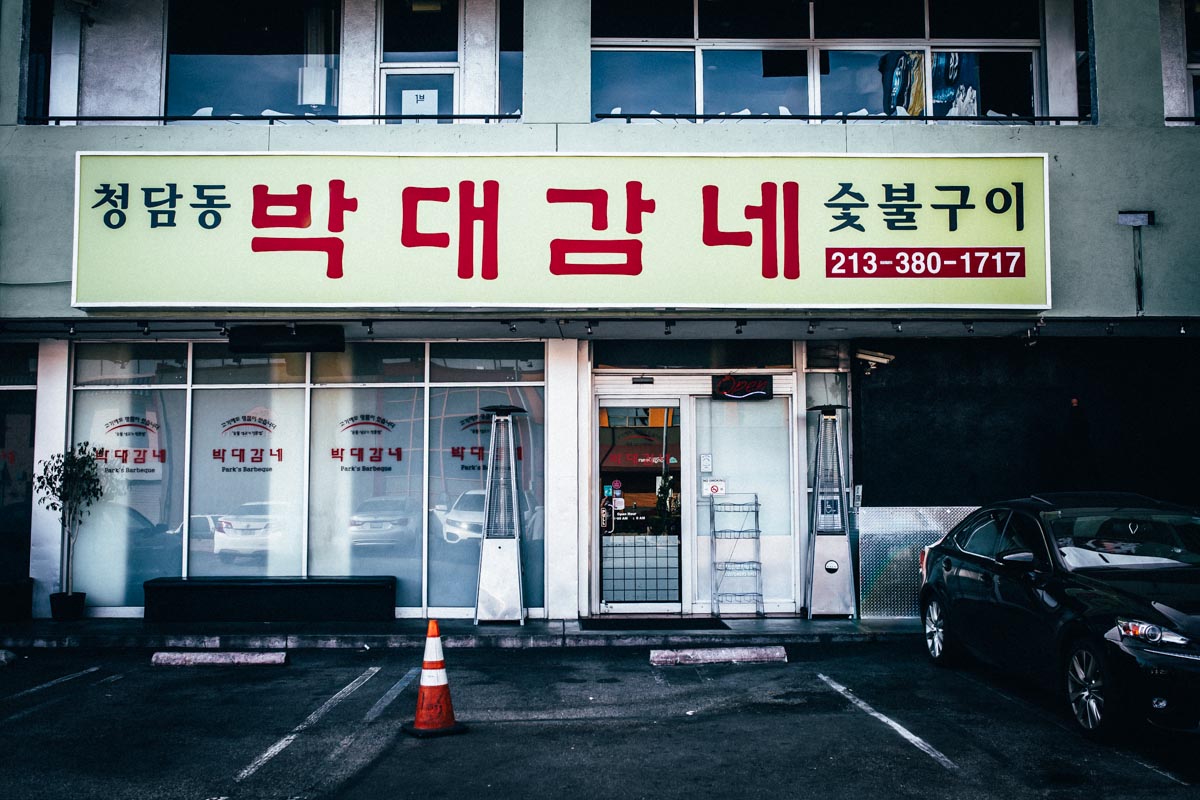
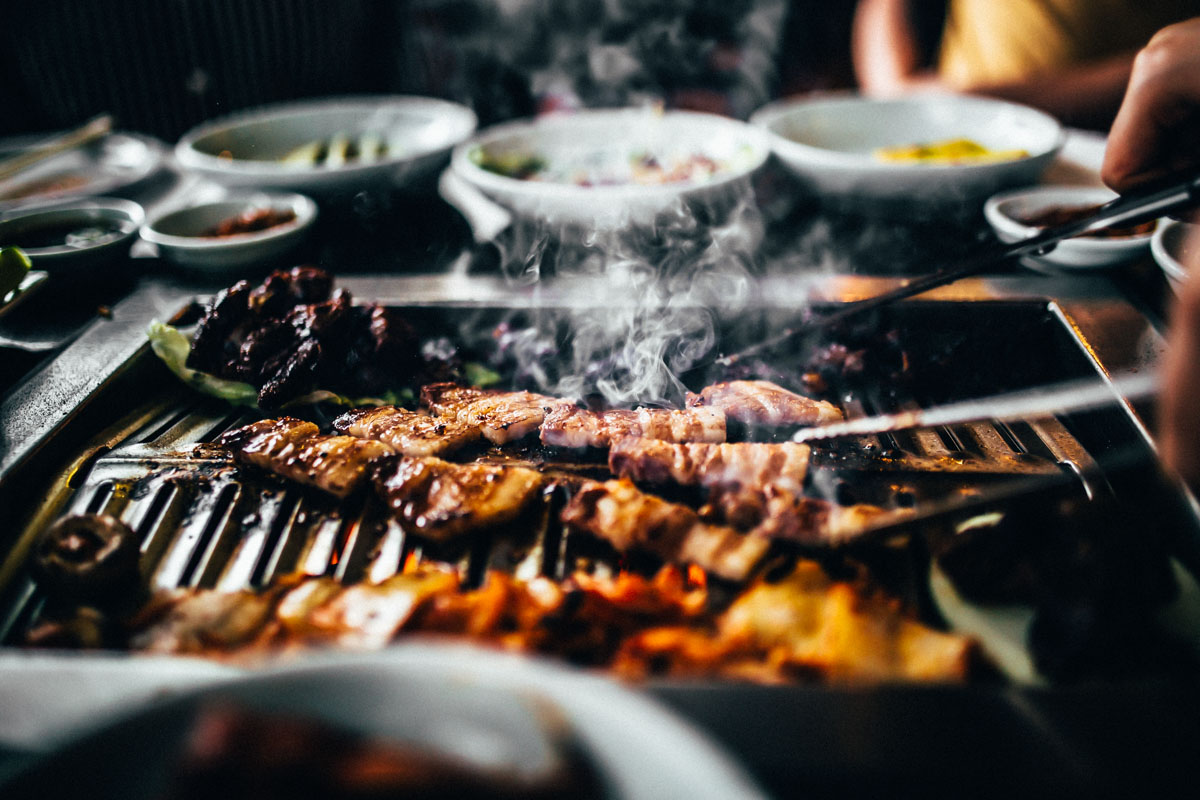
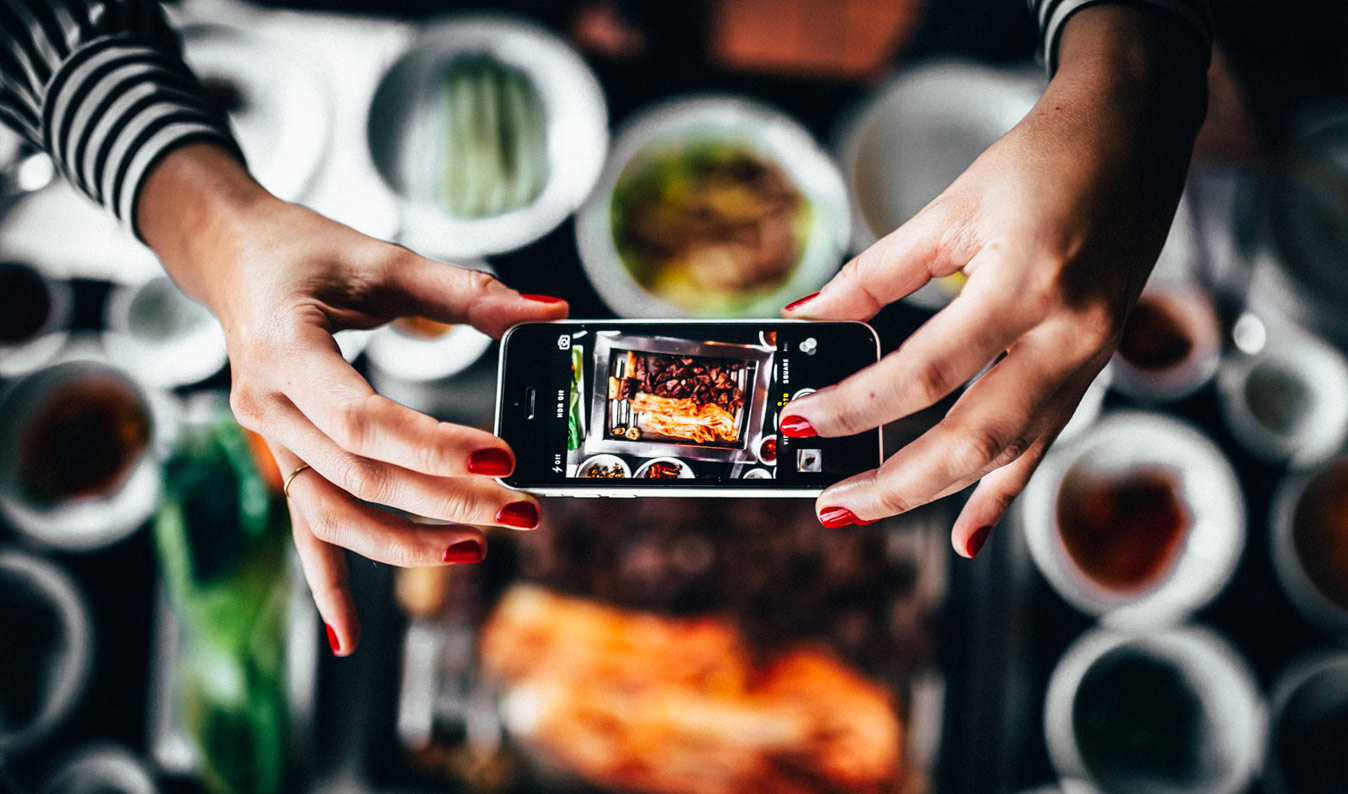
When I meet Jenee in her restaurant, she elegantly sweeps in to welcome me. She is a petite yet stoic woman; she speaks with pure confidence and directness to her staff. There is an air of loyalty and respect pulsing through the walls at Parks BBQ, from the butcher to the dishwasher, most of her staff have been with her since the beginning. She opened her doors in 2003 and she has been standing strong since.
The team is putting together our feast as I watch the butcher seamlessly carve prime pieces of flower meat (GGot Sal), the line cooks prepare whole pan fried atka Mackerel all at the same time as Jenee builds her thoughtfully curated banchan (small plates). They parade from the kitchen to the table and we eventually sit; the dining begins.
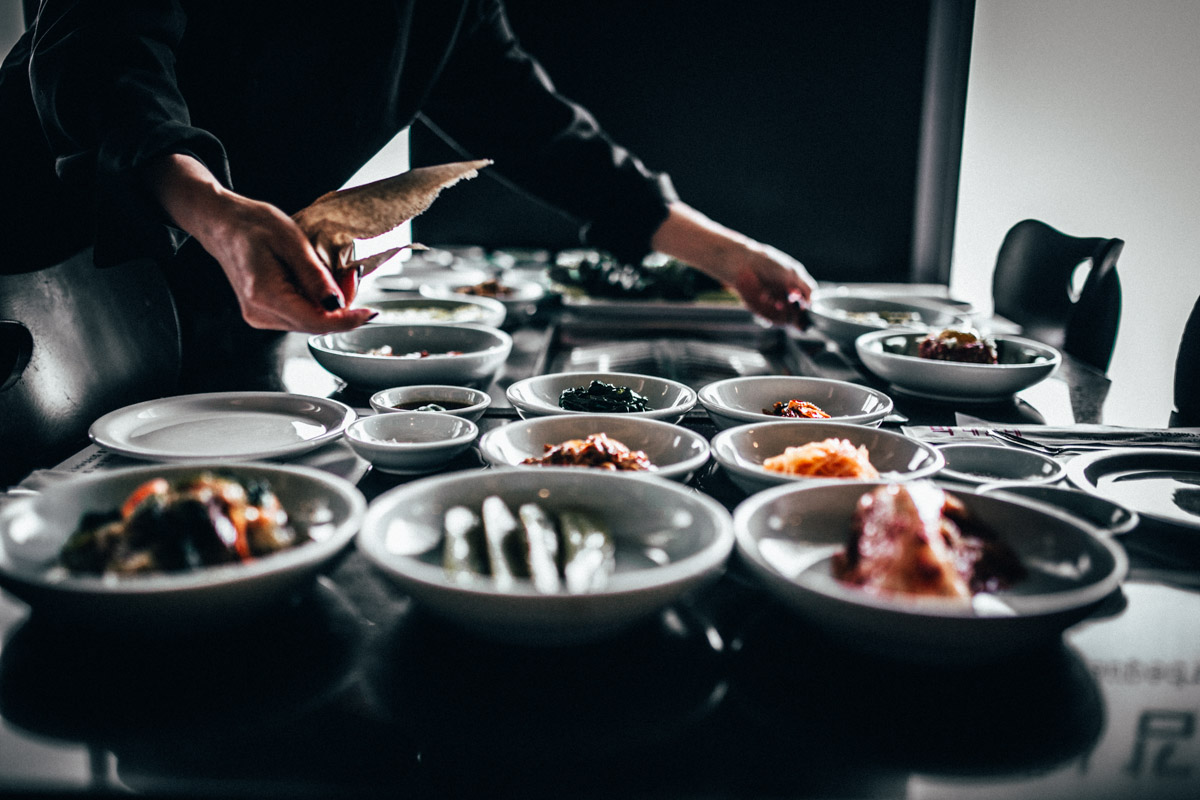
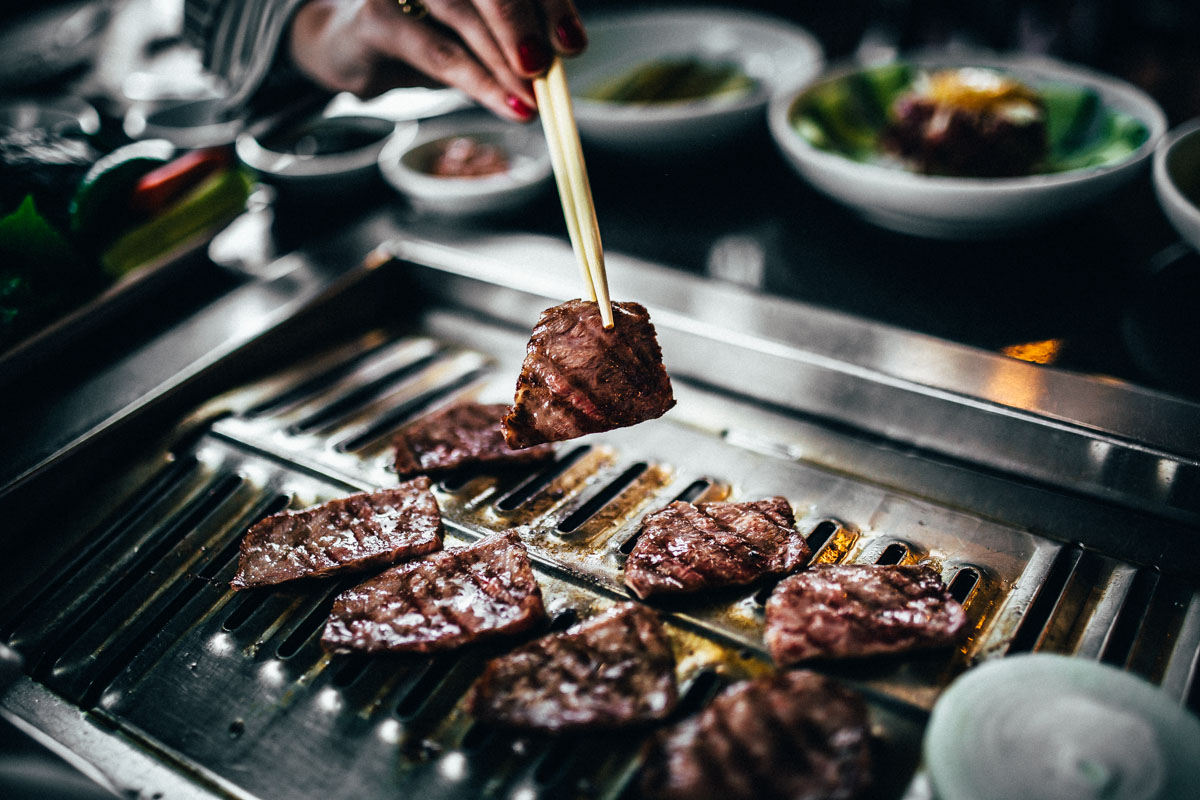
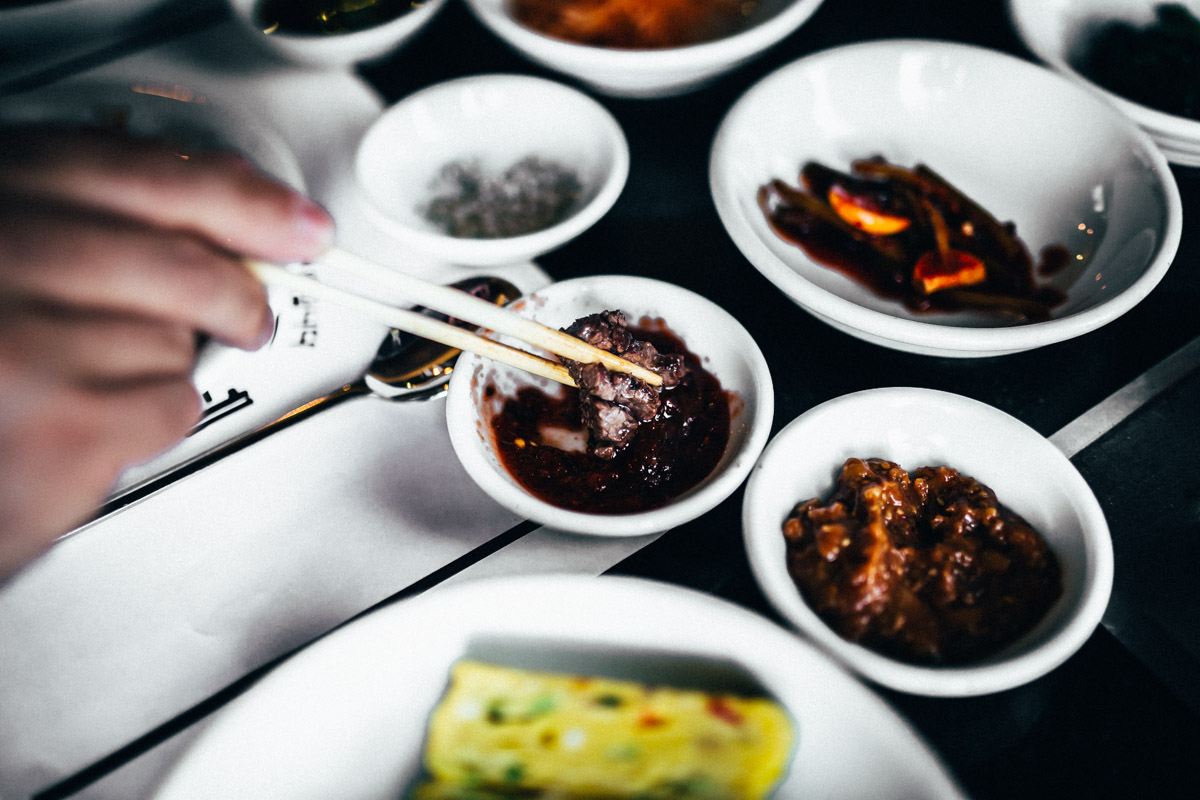
The table is camouflaged with tiny porcelain bowls. They are filled with fermented cabbage (Kimchi) and root vegetables, battered and fried squash and a more unfamiliar option of anchovies caramelized with walnuts, pine nuts and almonds. Our gracious host begins to prep both our charcoal and gas grill. First the grill is rubbed with beef fat (beef suet), the non-marinated diamond sized slabs of short rib begin to sear. An eye-catching dish on display is the beef tartar, a carnival of color with sesame seeds, pine nuts, pear, and thin ribbons of cucumber. The feast continues to grow. Parks signature Gal-bi arrives: marinated short ribs in a concoction of soy, garlic, chili, sugar, salt, and sesame hit the flame, then the perfect marbleized pork belly; the crisped fatty meat melts on the palate. Dishes begin to spill over onto the next table, the end is nowhere in sight. Her willingness to be so generous astonishes me. My favorite part of the experience, are the accoutrements. Ssam—which literally translates to wrap—are little vessels meant to help you enjoy the succulent meat with. A variety of leafy vegetables, such as squash leaves, cabbage, and lettuce, as well as paper thin rice sheets. The combination of meat to vegetable to finishing garnish/condiments of green onion, chili paste, and korean sea salt which they roast in house, are endless. The only regret she speaks about is the access of some vegetables we don’t have access to here in the United States. Overall, I think she is pleased with the painted spread we have in front of us.
When this much attention has been paid to every detail, from preparation to presentation and hospitality, it’s no wonder Parks BBQ has become a culinary institution in Los Angeles—an institution I am eager to learn more about.
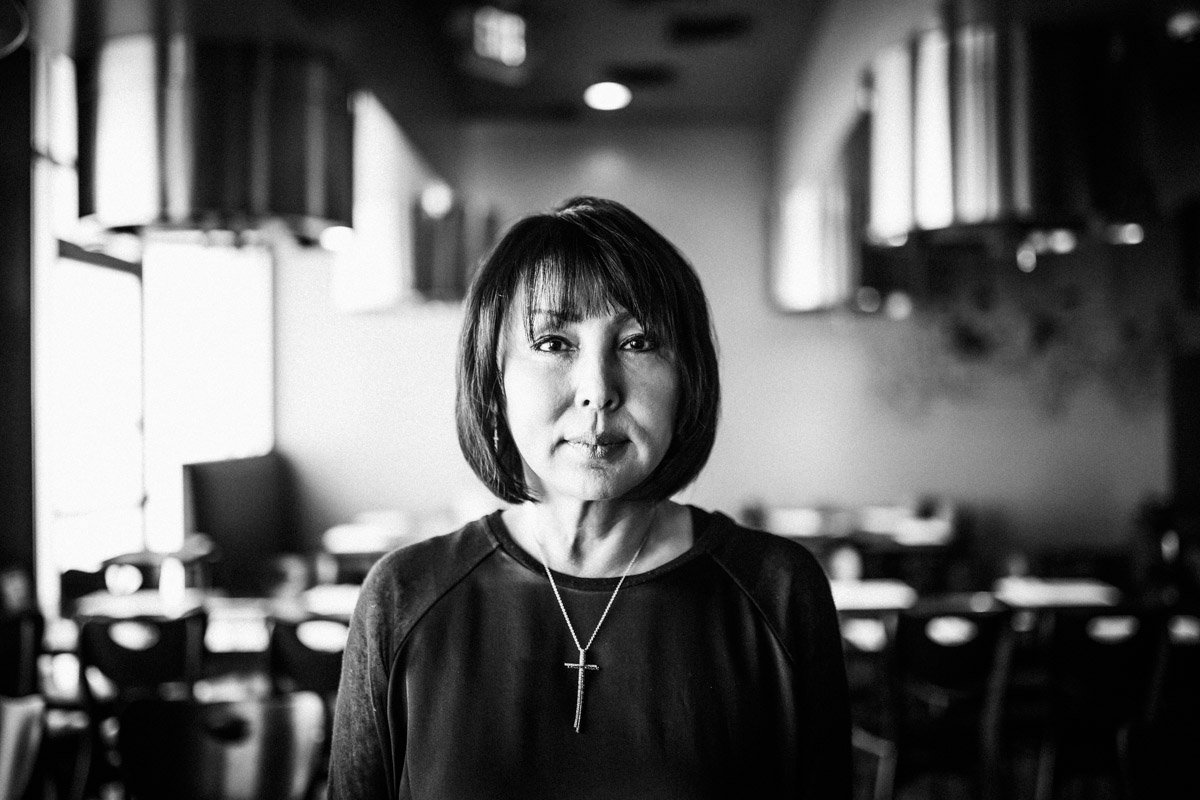
Tell me a little about where you were raised and how you fell in love with food?
Well, I was raised in Korea. In Seoul Korea. I started cooking when I was in high school and I really loved it. My father praised me and told me I was really good at cooking. So I kept on cooking and fell in love with it. My father was a big supporter of me becoming a chef. I continued on in college and studied culinary science. I then went on to receive a chef’s certification and nutritional degree.
When did you come to America?
First time was in 1972 and then again in 1983 when I got married. And at that time I was a housewife so I was cooking at home. My family and I had many gatherings and I was cooking for everyone. I just loved BBQ-ing and cooking for everyone. We had a lot of big parties.
Later on I got divorced and I had to raise my two kids, I have a daughter and a son. I had to do something and there was nothing else for me to do but to cook. There is nothing else I could do well. I had to cook and figure it out. There had to be something—I needed to do something to live.
I didnʼt come from a restaurant background, no one in my family was in the restaurant business. My father was a professor, the president of an university. My mother, a housewife. We always had lots of friends and many people around us. When I was married even my in-laws loved to bring people together. They had a big family so we always had big parties at home.
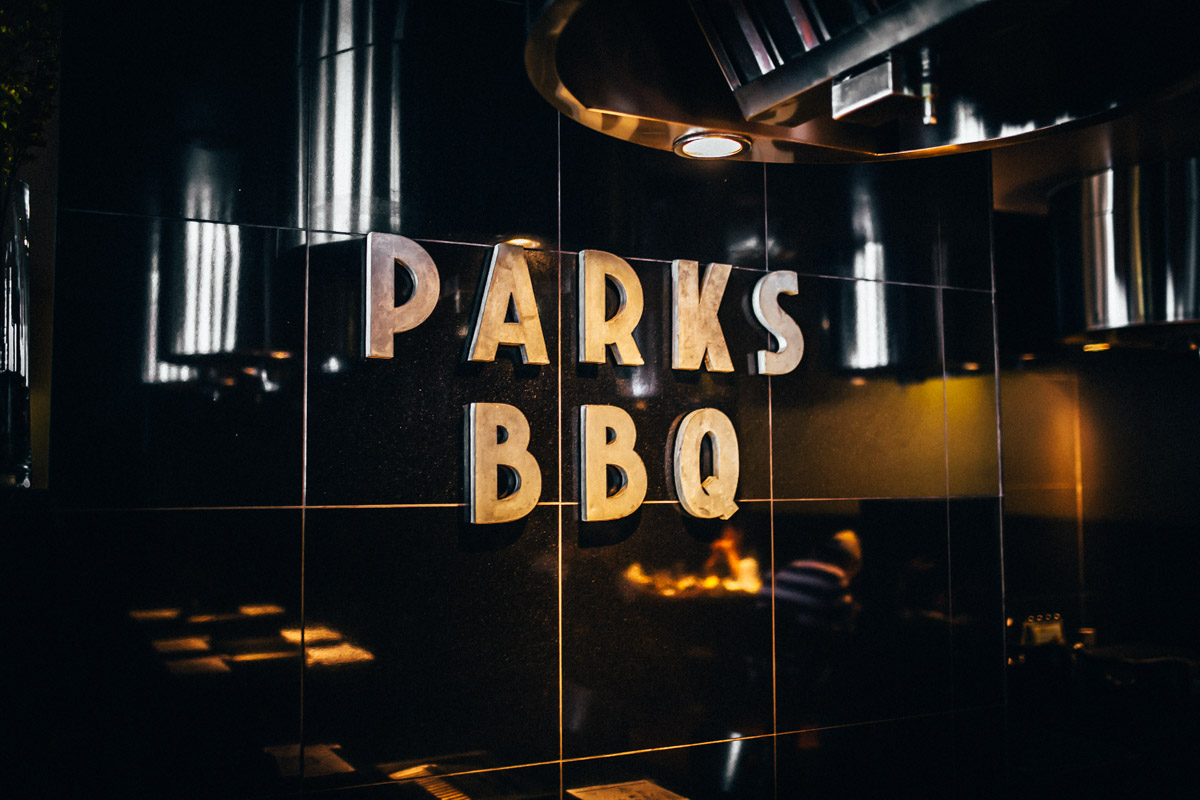
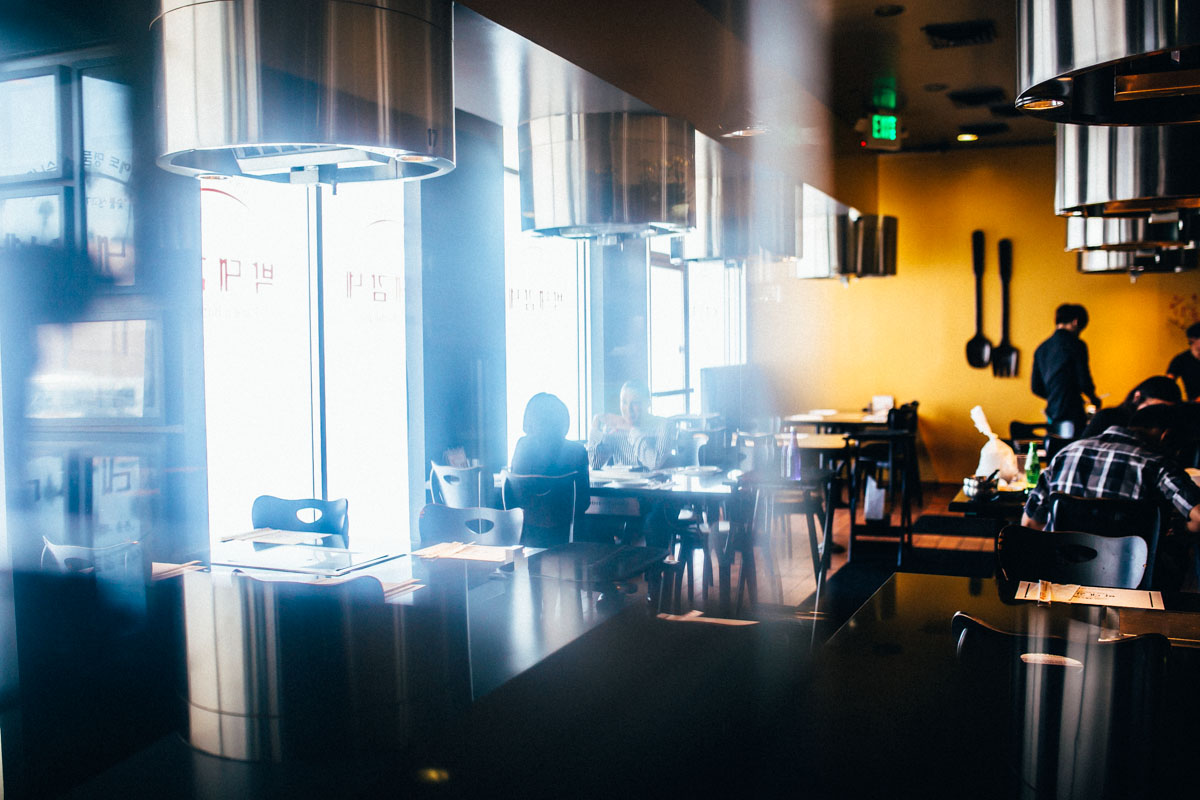
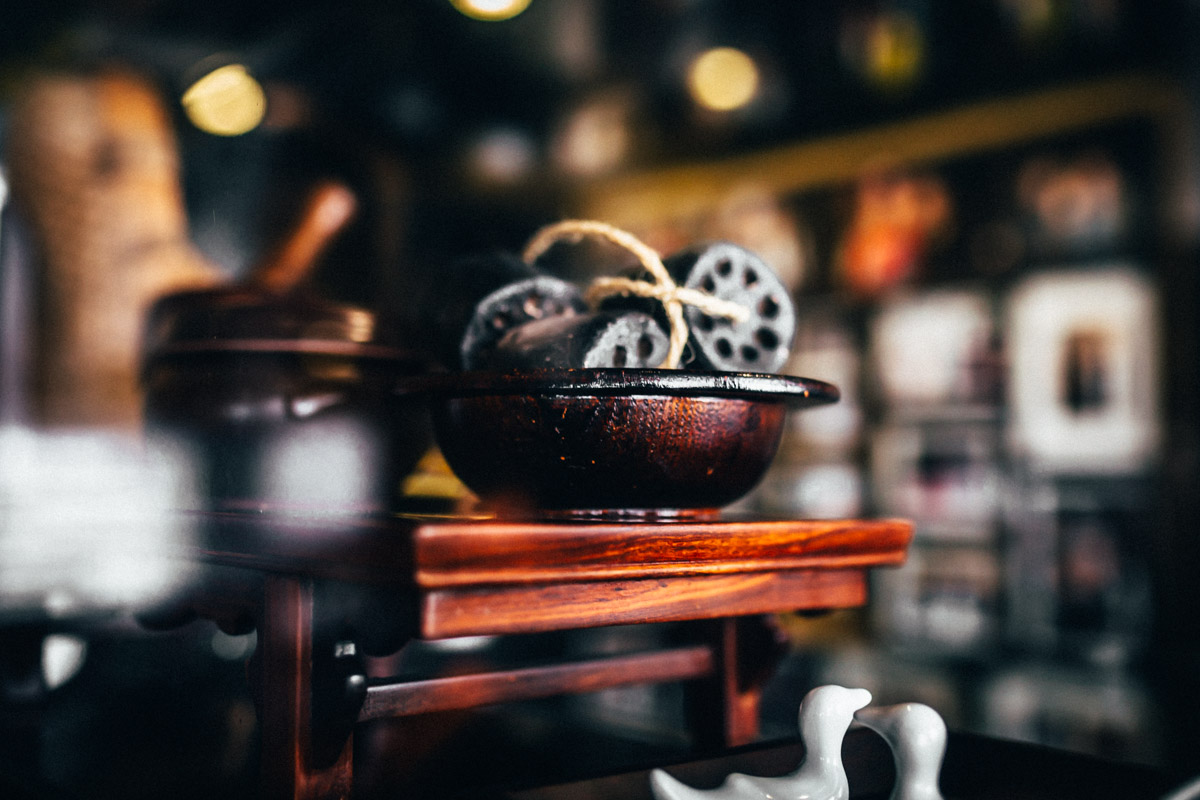
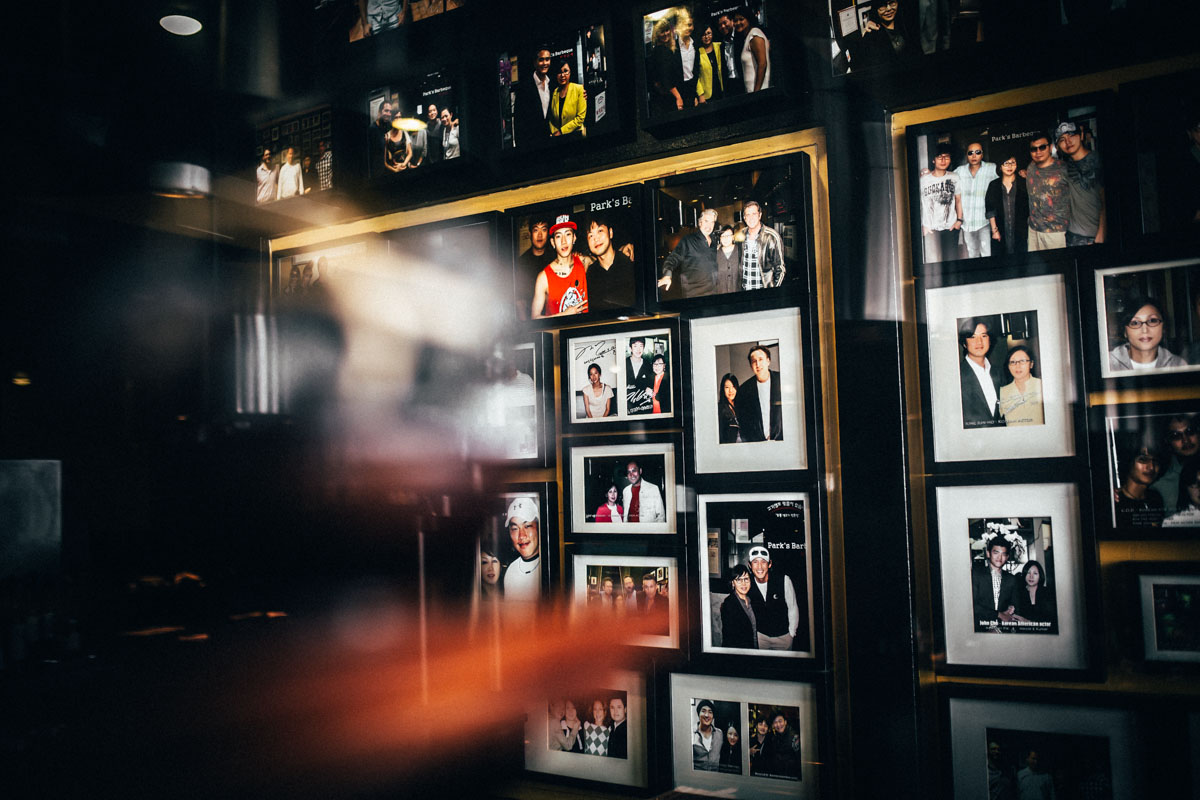
When you finally decided to open a restaurant, what was that like?
I was kind of scared, but I was also really lucky because I met someone who was willing to help me. Parkʼs BBQ is franchised. The original Parkʼs BBQ is a very famous restaurant in Korea, right in the middle of Seoul. A friend of mine introduced me to the owner and chef, Mr. Yoon, and I went there to learn everything from him. I went back to Seoul for three months to experience the kitchen, I learned all the recipes. I learned as much as I could about how to run a restaurant in a short time. In the beginning it was about the owner and I doing it together. However I ultimately ended up not becoming a franchise. I did it on my own. The only way they are connected is by name. I received a lot of help from him in the beginning. I remember the first day I opened, I couldnʼt believe it. I just couldn’t get over the fact that people were coming here to eat my food—and pay for it! We started in 2003 and have been open for twelve years.
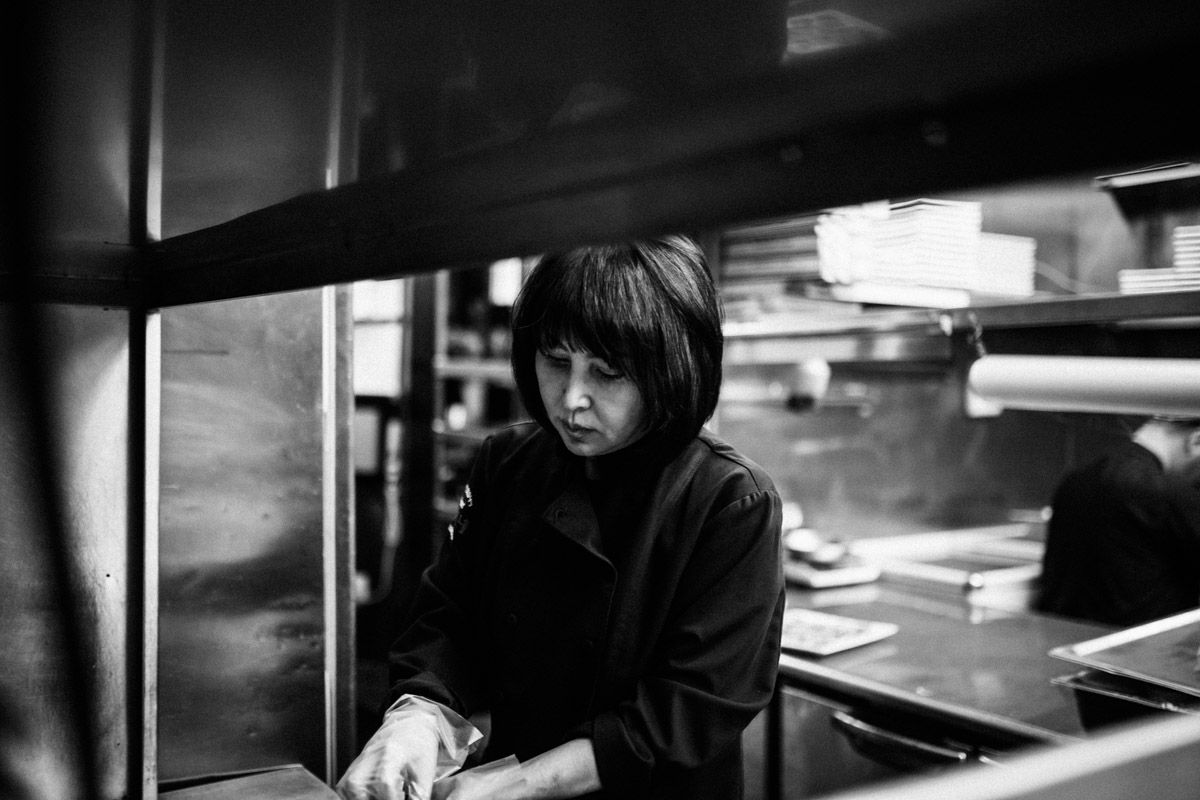
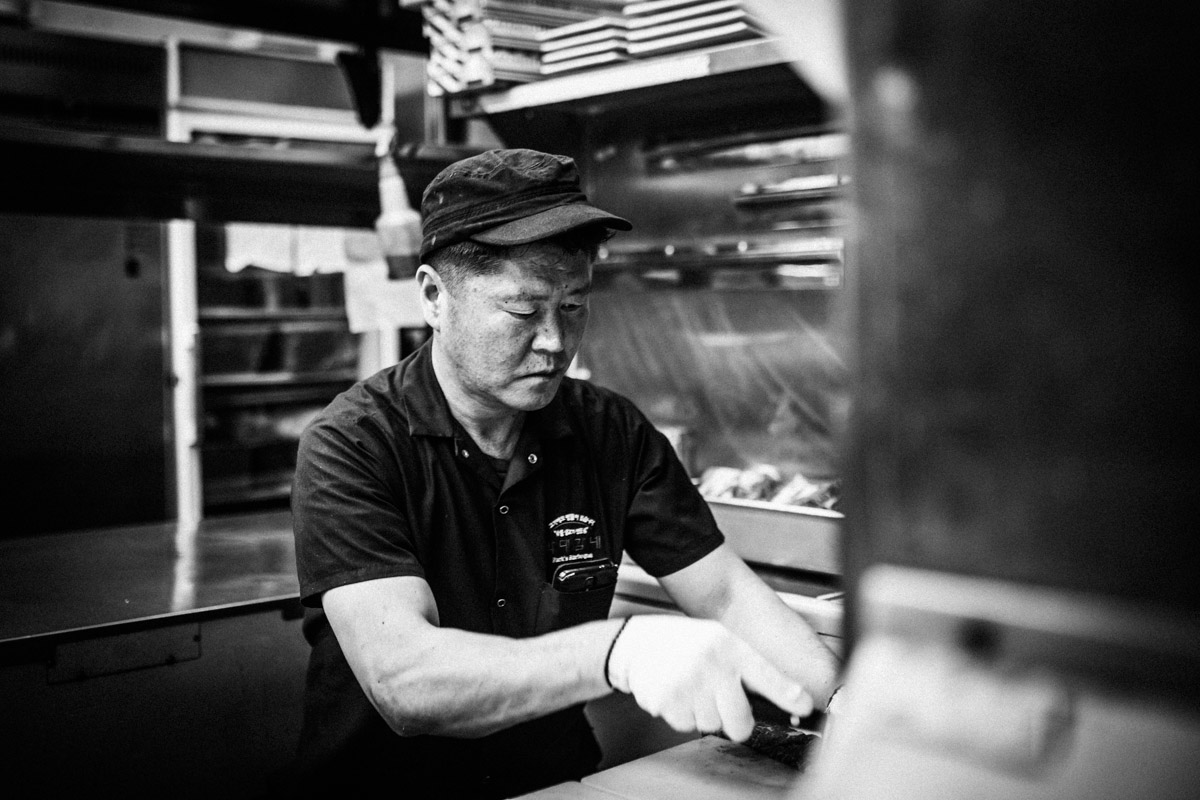
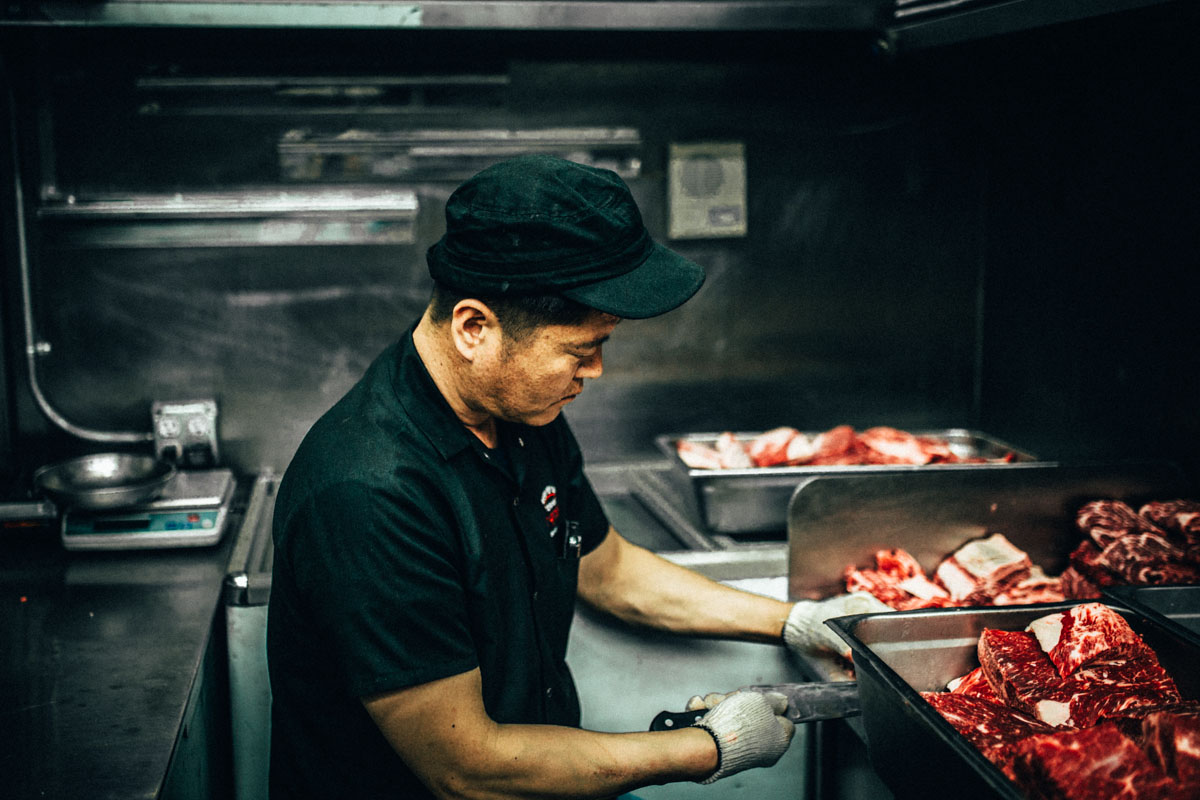
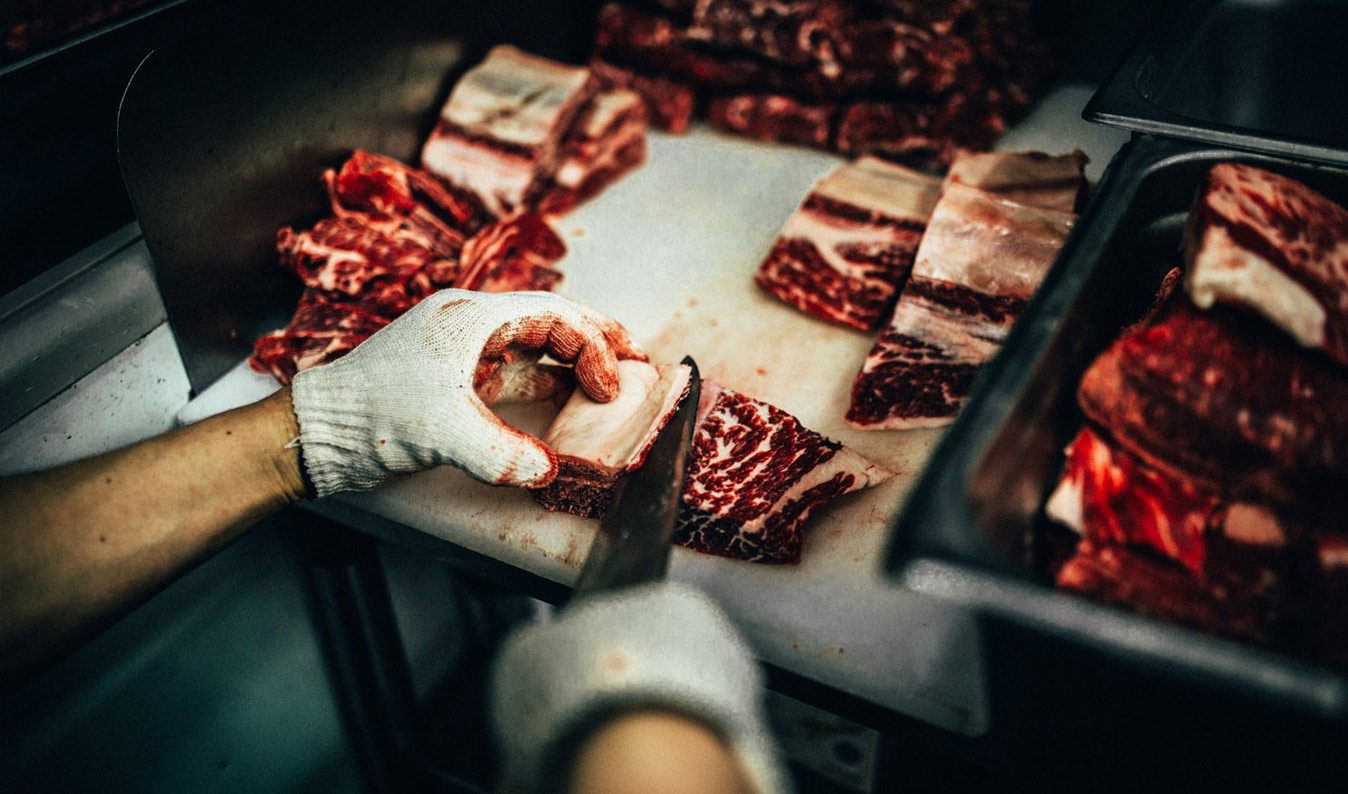
Chefs, food writers, government diplomats, celebrities from all over come to eat in your restaurant. How has this grown?
L.A. Times was something very special. When the article came out, it made feel like I had achieved my first success! They loved my food! The article really started to introduce more people to the restaurant. Then my daughter Liz became a chef and then we became friends together with the community.
In 2011 we were involved in a special project to revamp LAX that connected me to other restaurants and chefs. Nancy (Silverton) from Mozza, Susan Goin (chef from AOC, Lucques, Tavern), Susan Fediger from Border Grill, other restaurants like Patina…we worked on getting into LAX for two years. It brought us all together, though the project didnʼt come through in the end. But it brought us together to become the center of the Los Angeles food community, and I became really close with all the chefs.
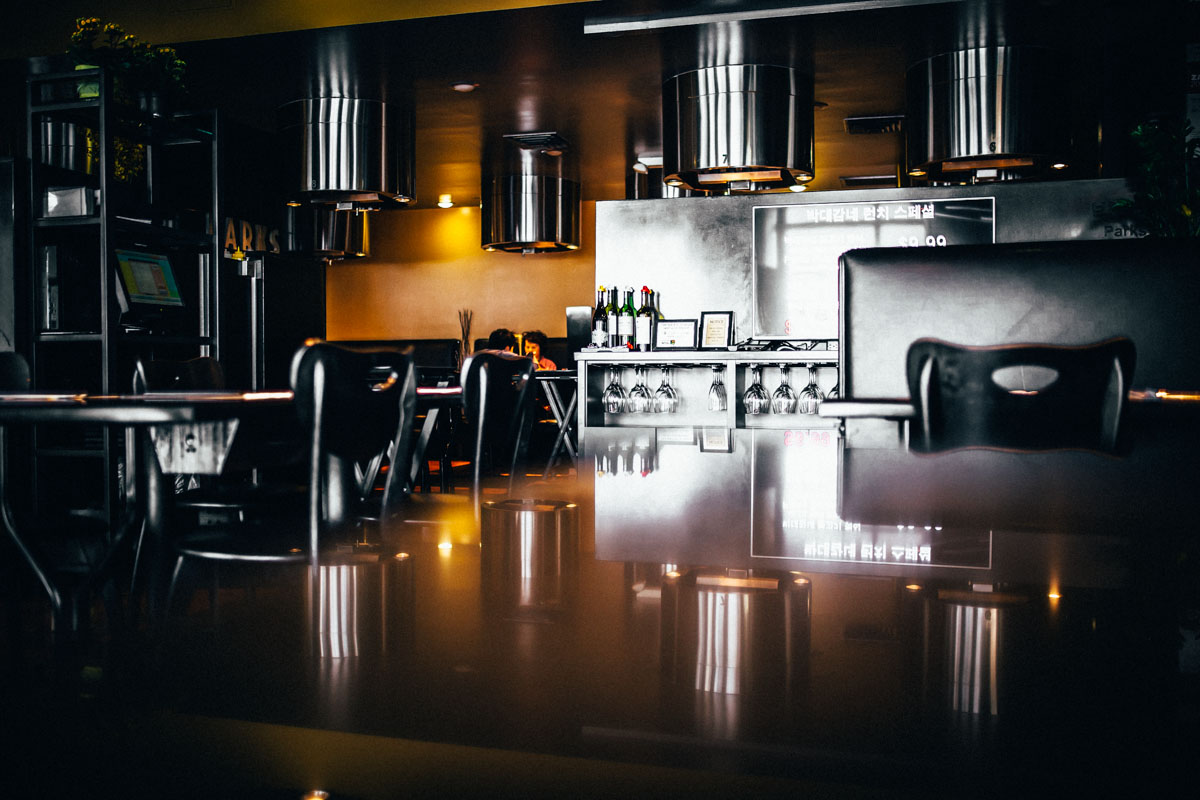
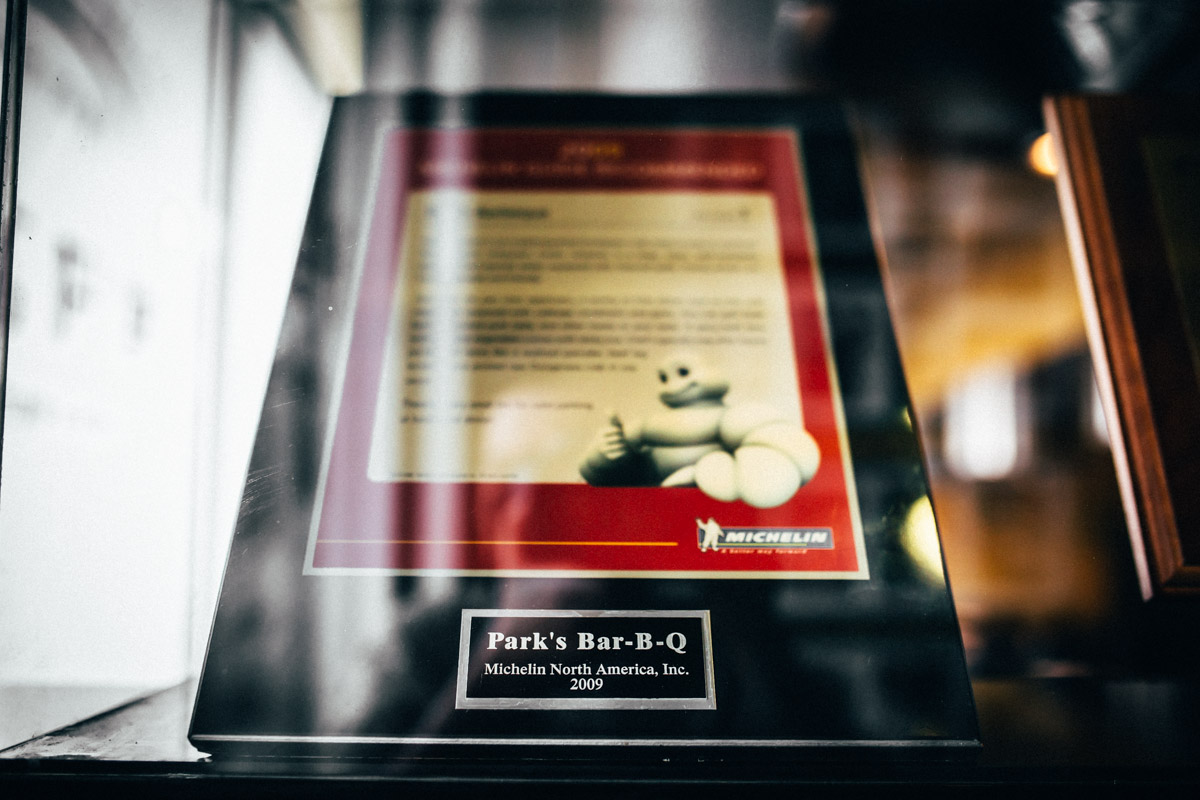
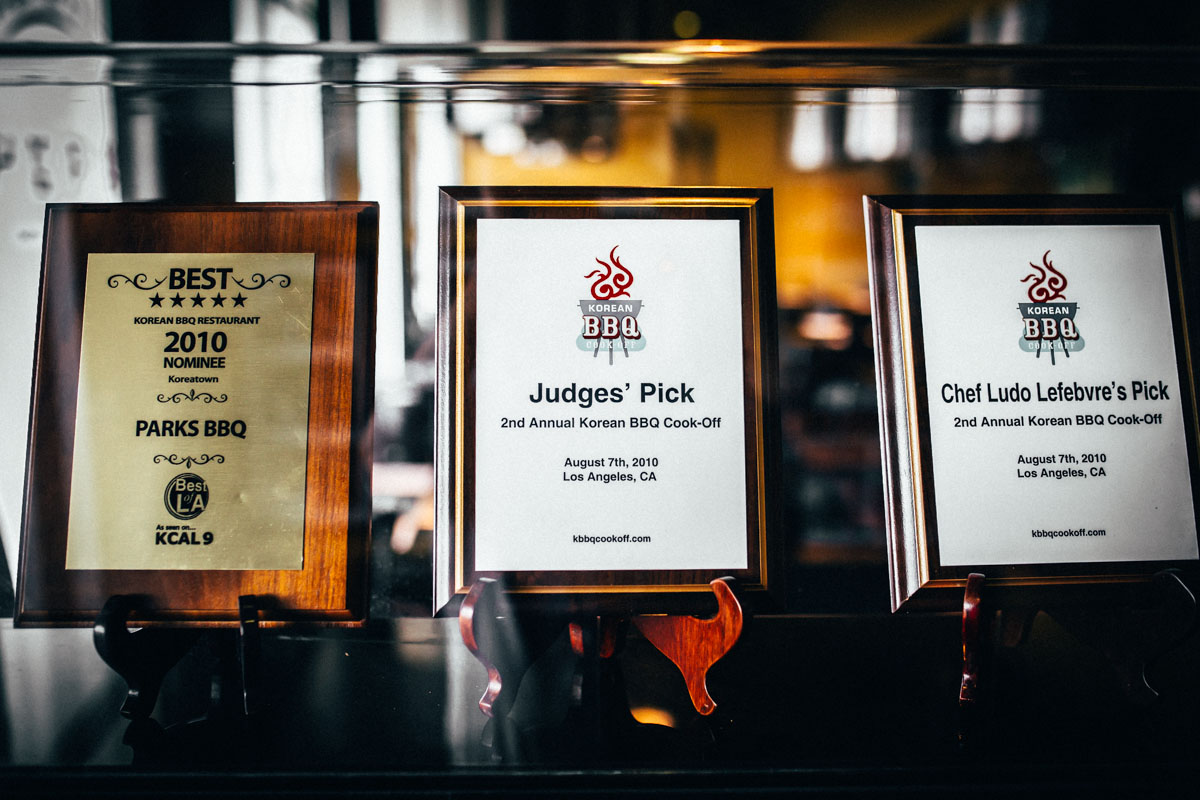
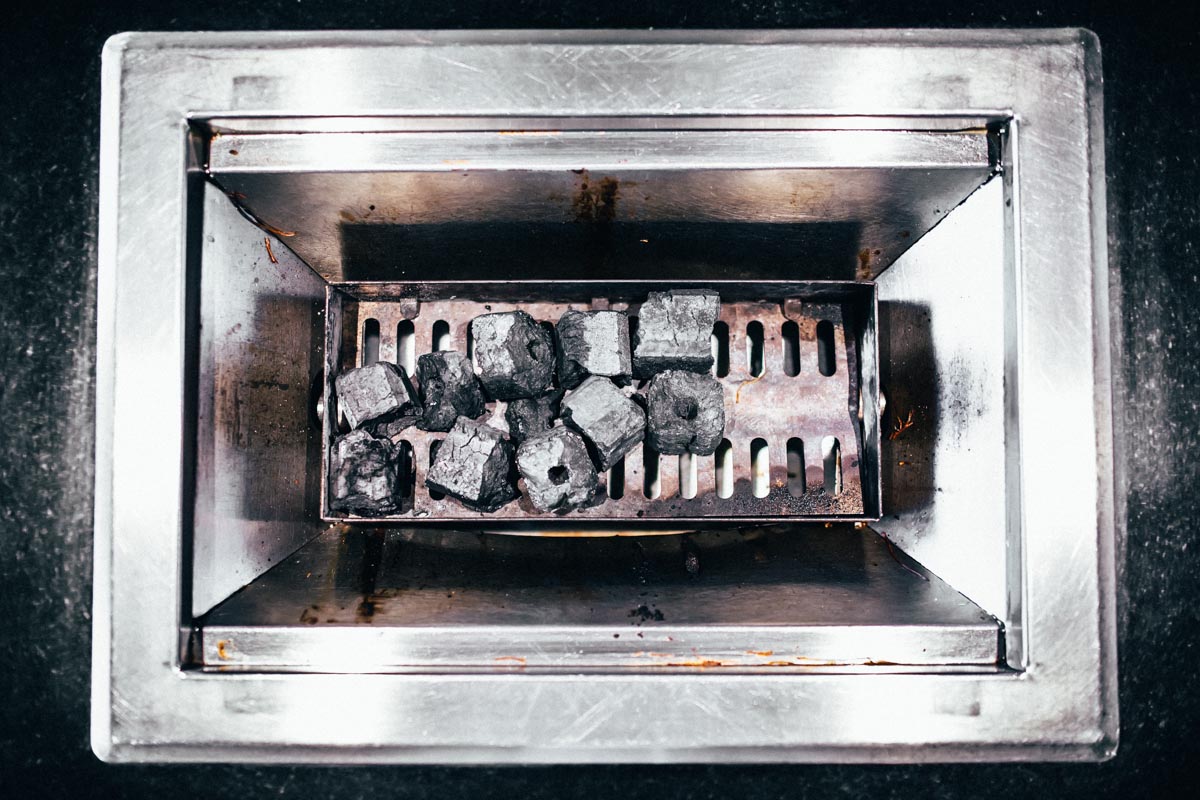
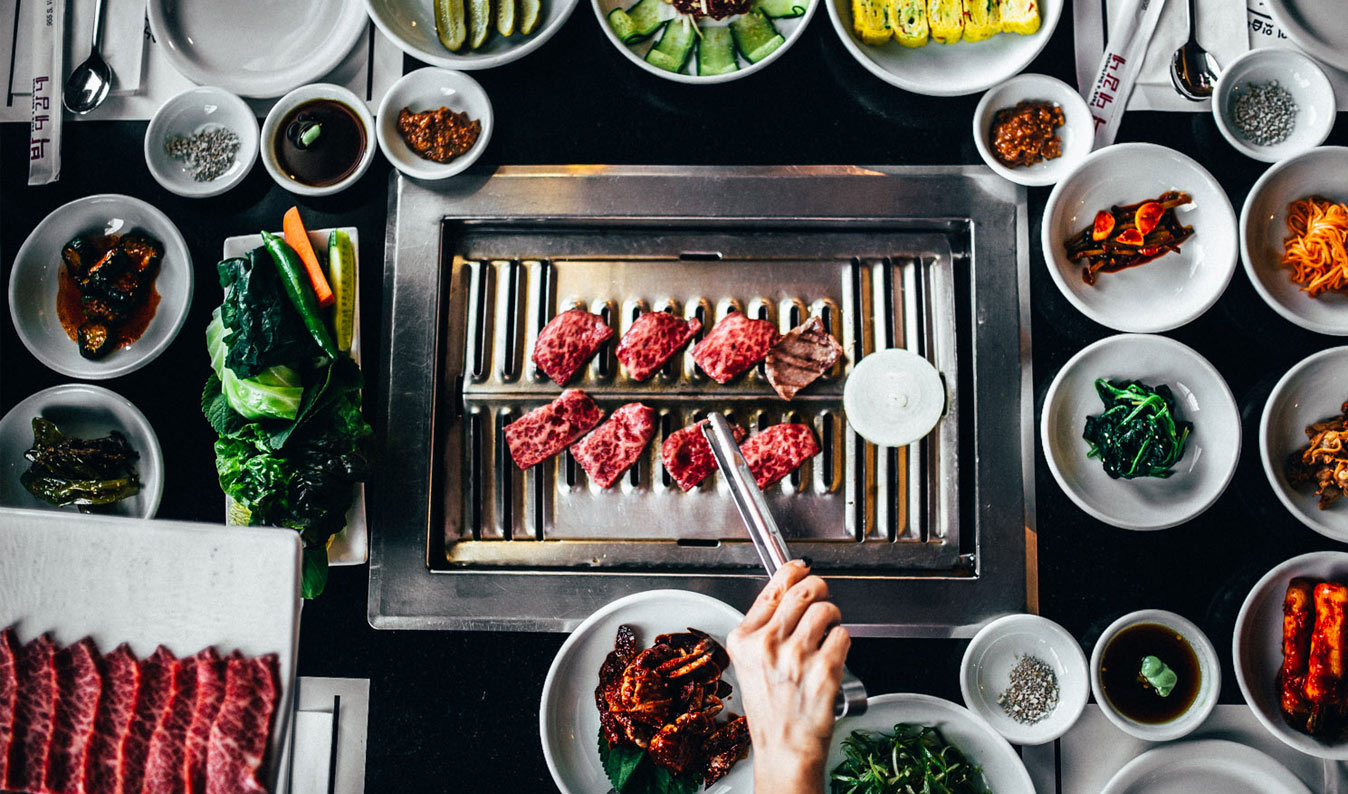
How did you feel about your daughter wanting to become a chef?
I wanted her to! At first she started working at the restaurant in the kitchen with me. After that, one of the chefs and I saw her talent. We thought, “Wow, sheʼs really good.” I told her to go to culinary school. I wasnʼt sure if she was going to finish or not! I didnʼt know what was going to happen. I am so proud of her.
How did you feel as a woman opening your own restaurant?
I didnʼt think anything about it at the time. I really wanted to do a restaurant and it didnʼt really matter whether I was a woman or not. It was a really big restaurant and it just didnʼt matter to me. When I first opened I had a really hard time because of the liquor license. The business prior to me had received a lot of tickets so I had a really hard time in the beginning. I had to create a portfolio and present it to the city. We didnʼt have a liquor license for seven months. With Korean BBQ, you have to have soju and beer. When we first opened, people came in and saw we didnʼt have a liquor license and they would just walk out. That happened a lot. Then after we got our liquor license, mad cow disease hit. It was so hard in the beginning, one challenge after another.
I put everything I had into the restaurant and I really struggled. The first two years were hard but I made it. I had no other choice. I told myself, “I have to do this, I have to get through it.” I didnʼt care about anything but my restaurant. I had to do this for my family. The kitchen is where I belonged and I had to make it happen. God helped me. I feel so lucky.
I did everything in the beginning and for a long time after. I started to relieve responsibility and had people help me. I would then take my managers to restaurants around Los Angeles. We go out to other places to see where we can improve and learn. We have something to learn, even from the smallest restaurant. Going out and dining is very important. I go out with my daughter and my managers and staff and when we all dine together I tell them we have to learn at least one thing.
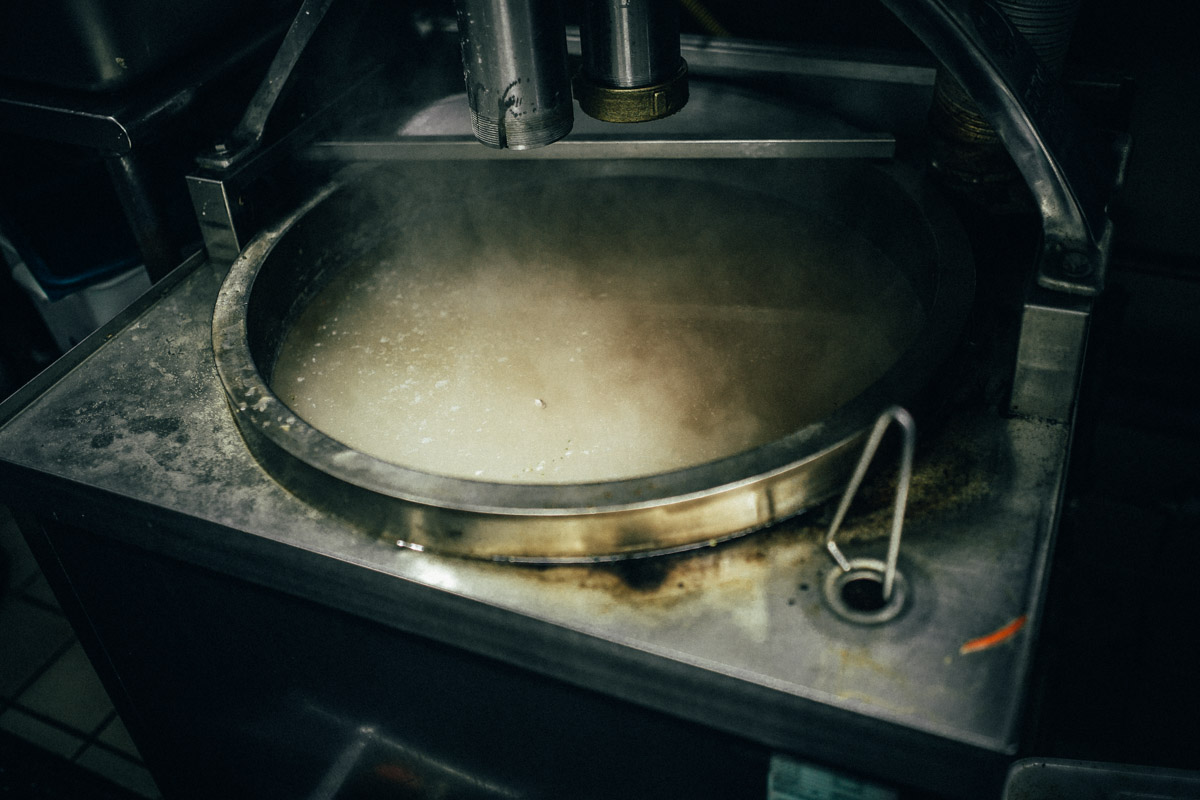
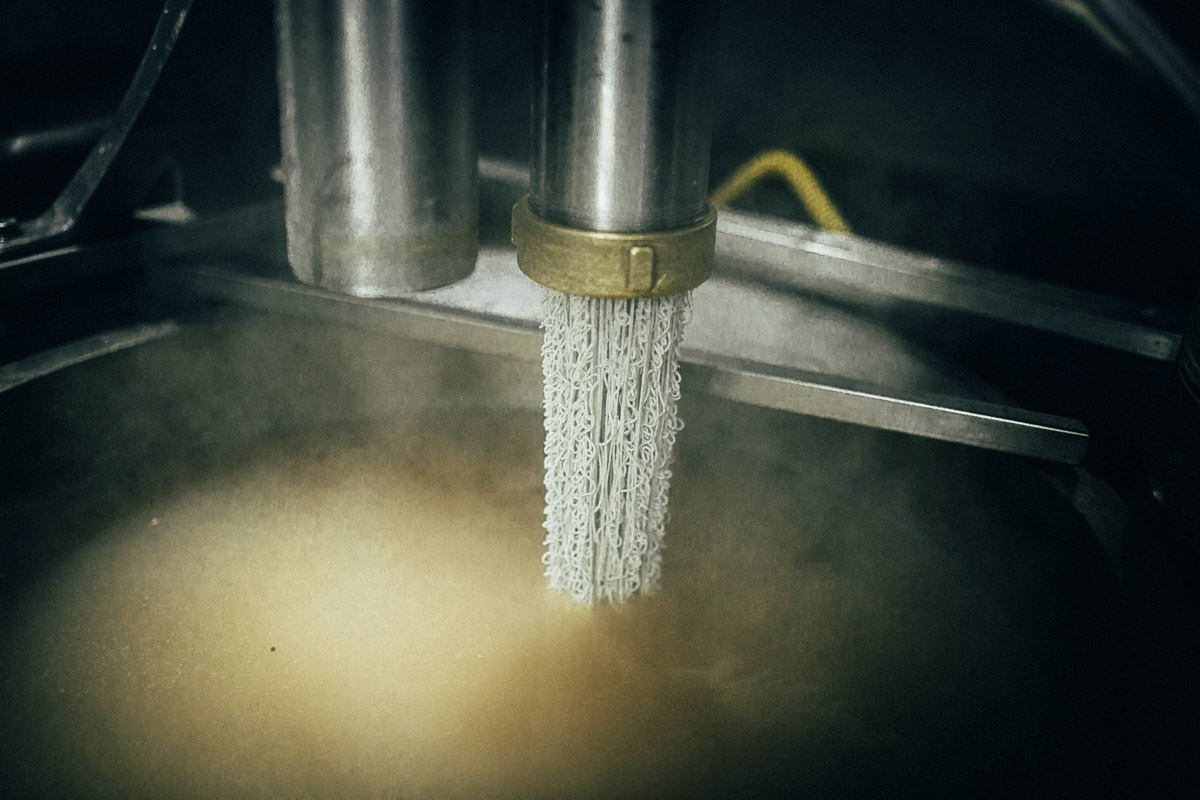
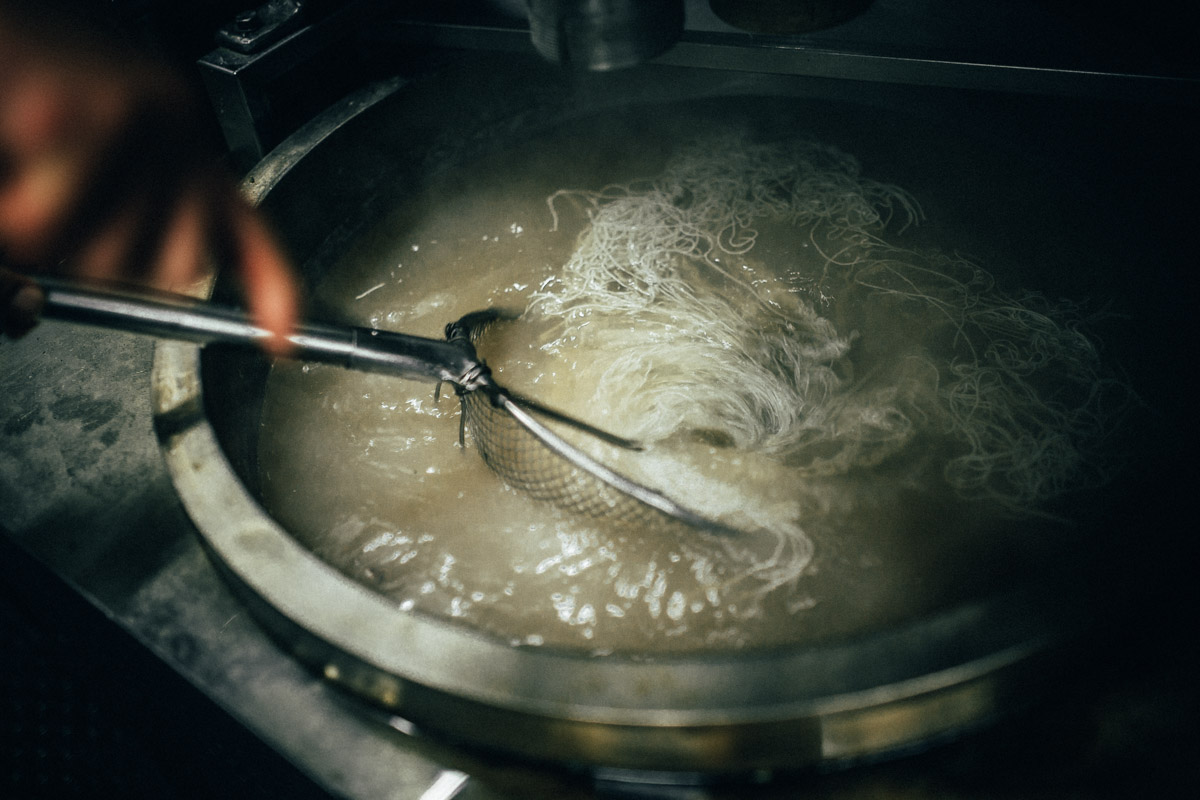
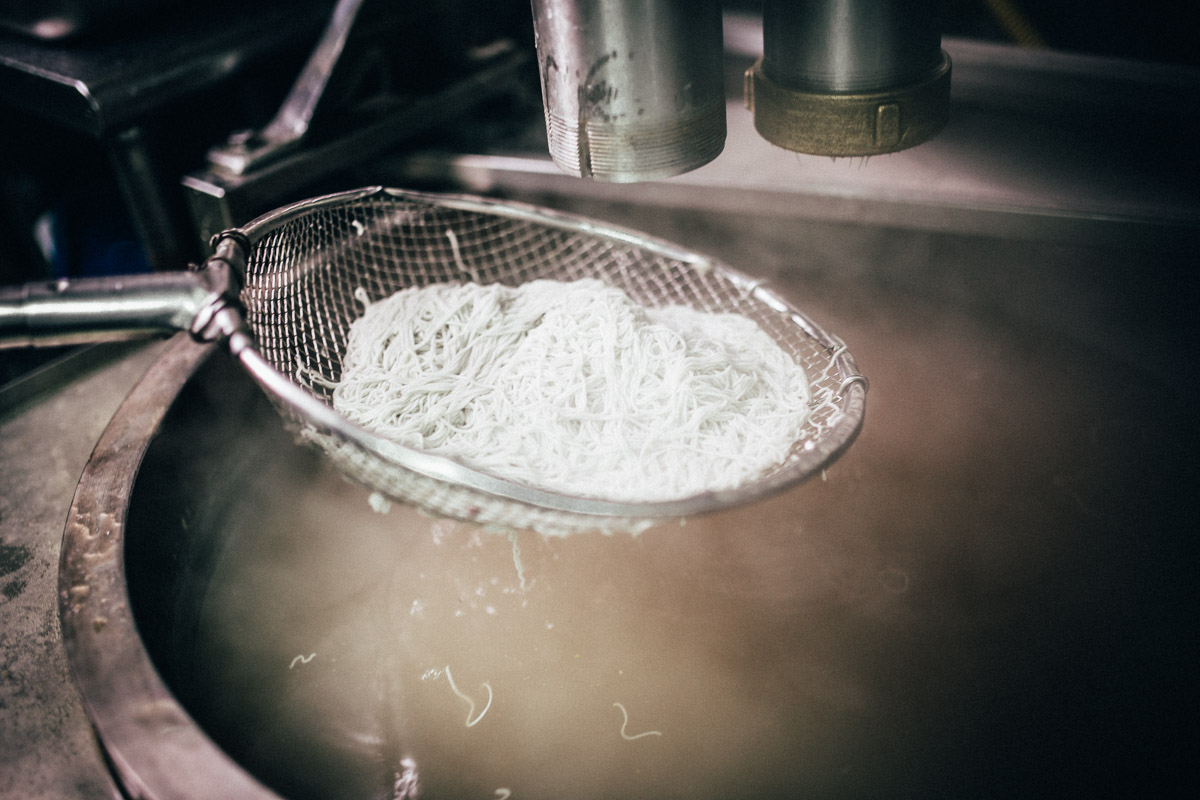
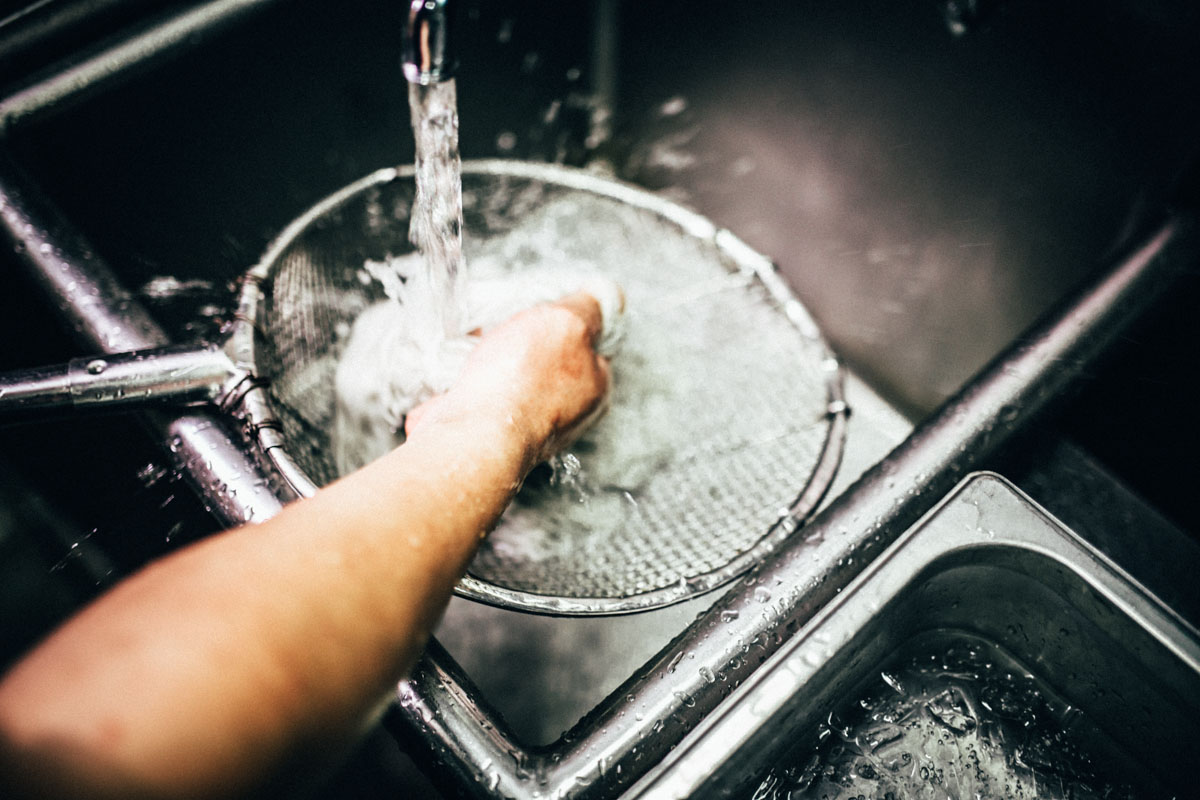
Why do you feel about Korean food becoming more popular?
One of the reason is because of Michelle Obama making kimchi at the White House, promoting the health benefits of Korean food. After that I feel that people who wouldnʼt necessarily become interested in Korean food did. I also think K-pop drove the globalization of Korean food as well. About six years ago I was invited by Sook Ja Yoon who runs the head of the institute of korean traditional food to go back to Seoul and cook with chefs from all over the world. I learned so much from her and since then have considered her my Mentor. She was just at the White House, you know?
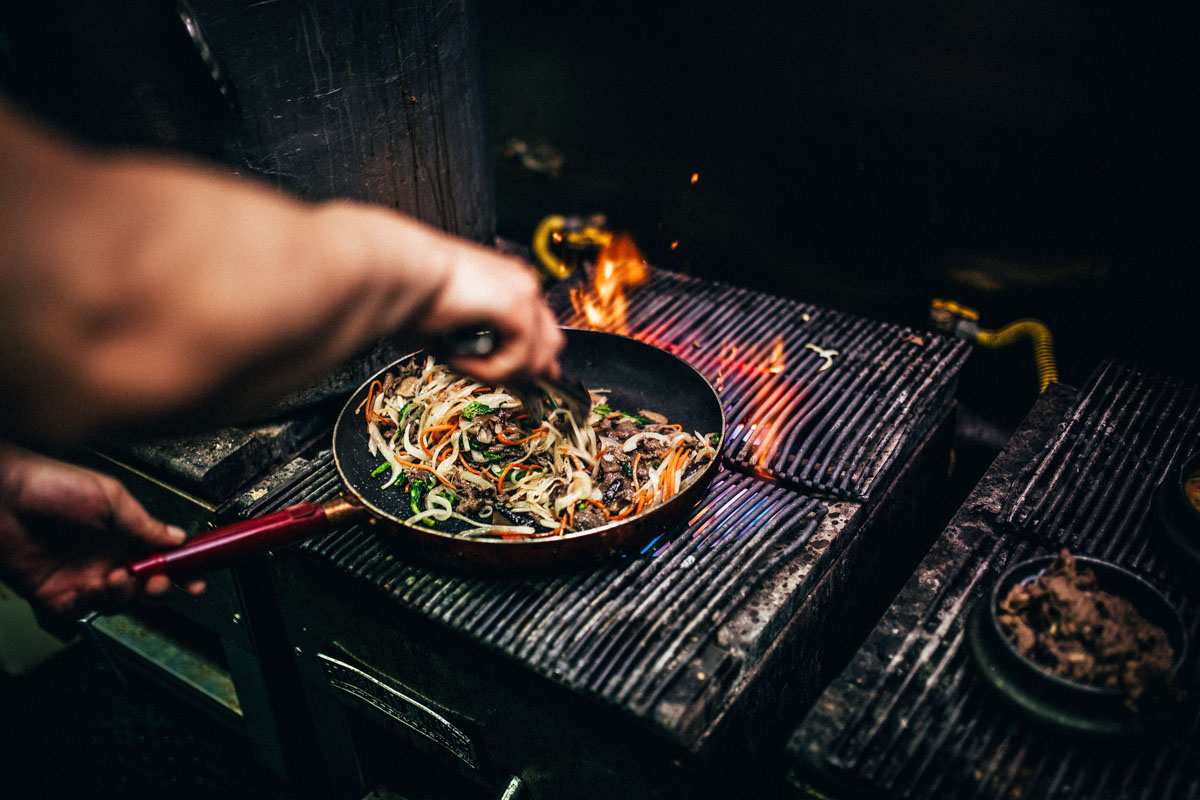
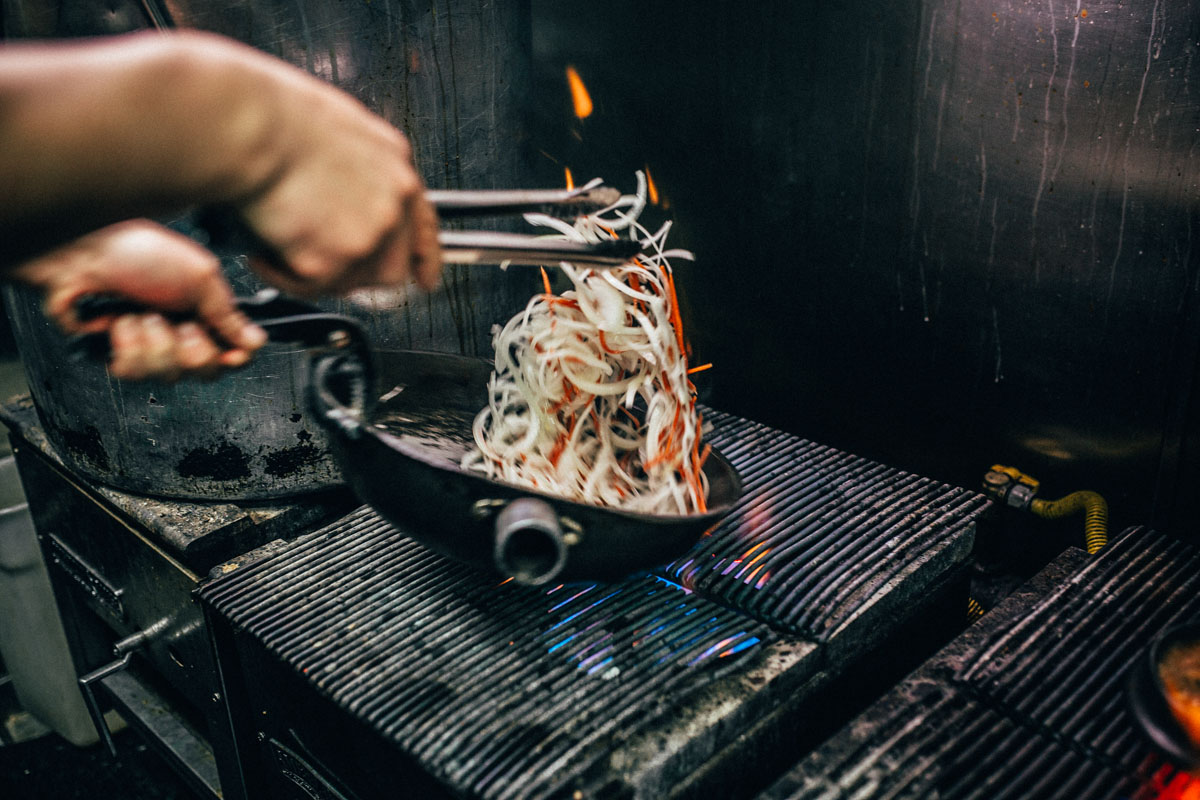
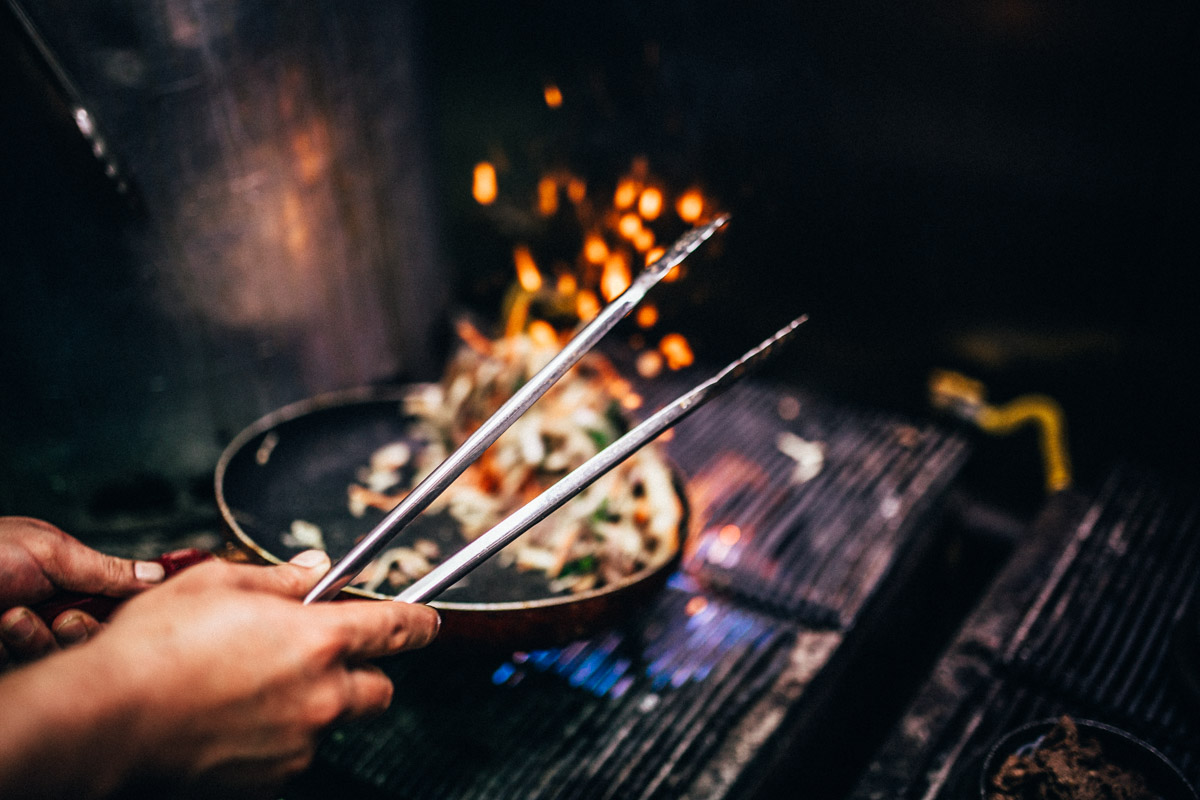
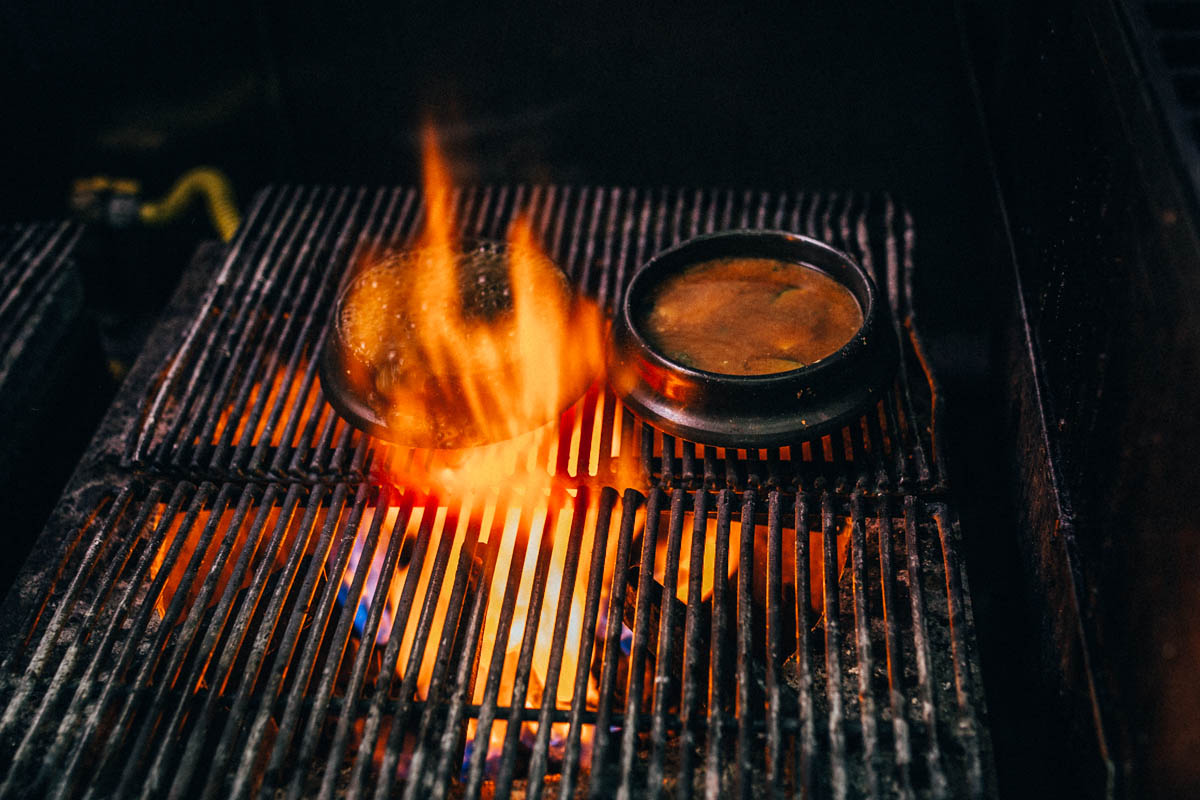
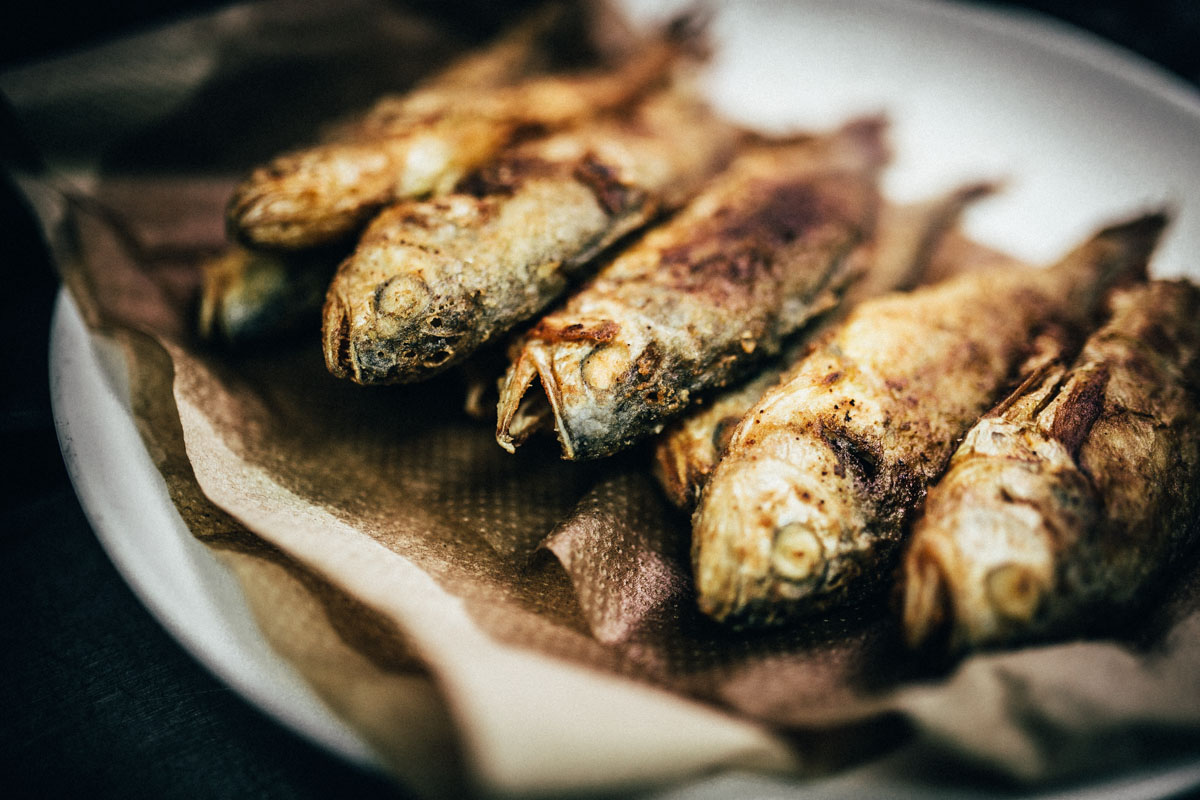
What does Korean dining mean to you?
Its part of our culture. It’s what I know. We are not afraid of sticking our chopsticks into the same bowls as the people we are eating with. Its a real family experience.
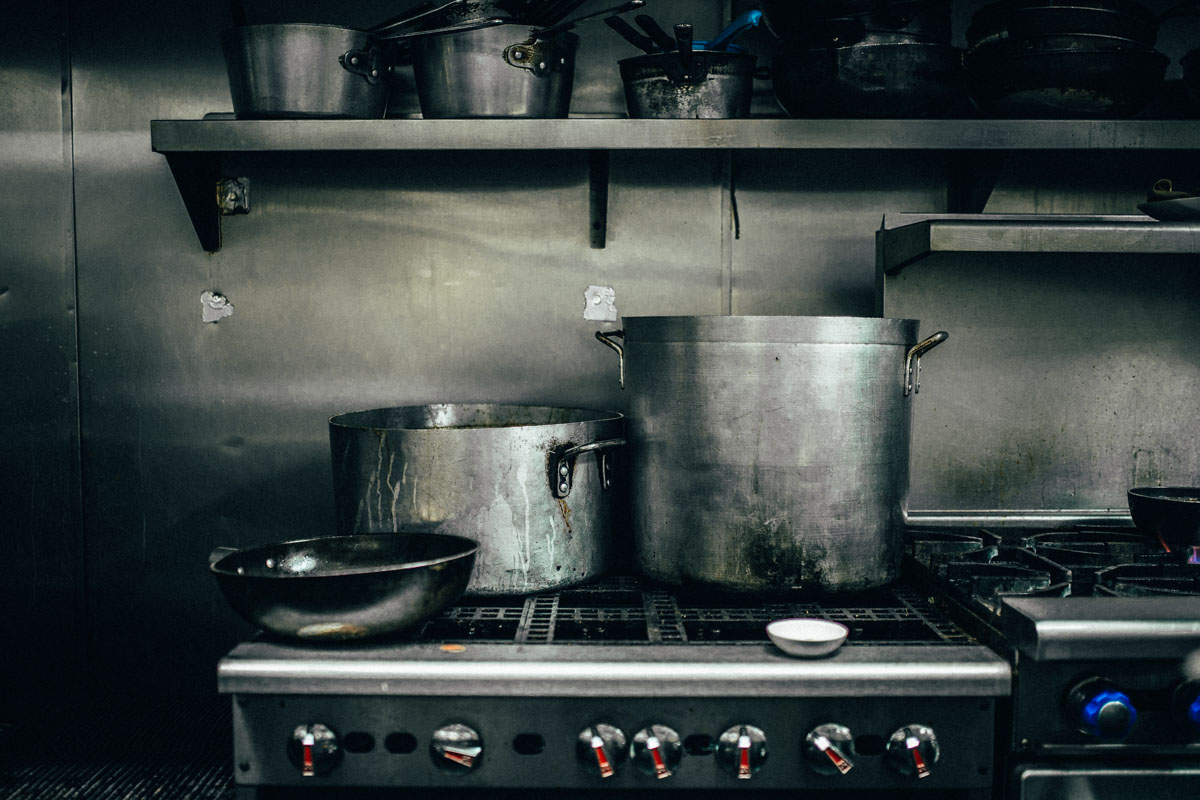
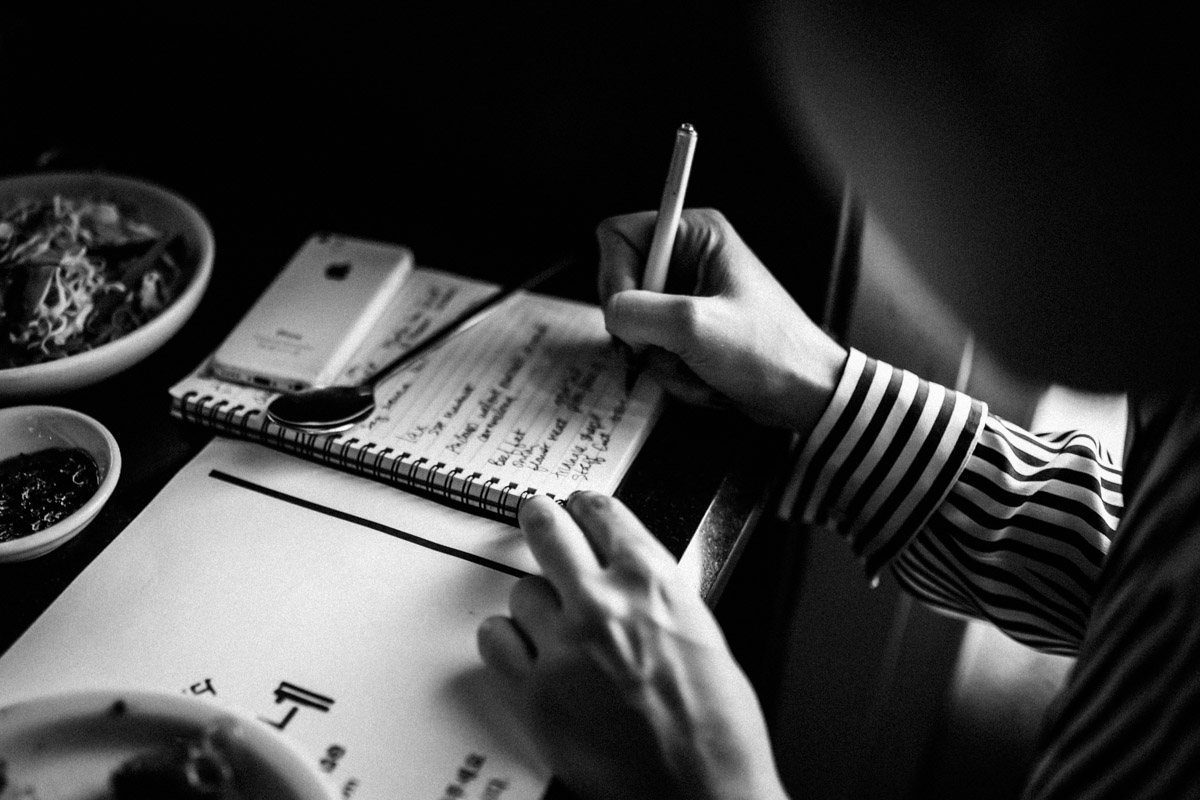
What do you hope is your next culinary chapter?
My dream is to have a restaurant with my daughter, Liz. I donʼt know what her dream is, but mine is to have a restaurant with her. I keep telling my son to go to culinary school too. I hope we can all do something together. This would make me very happy.
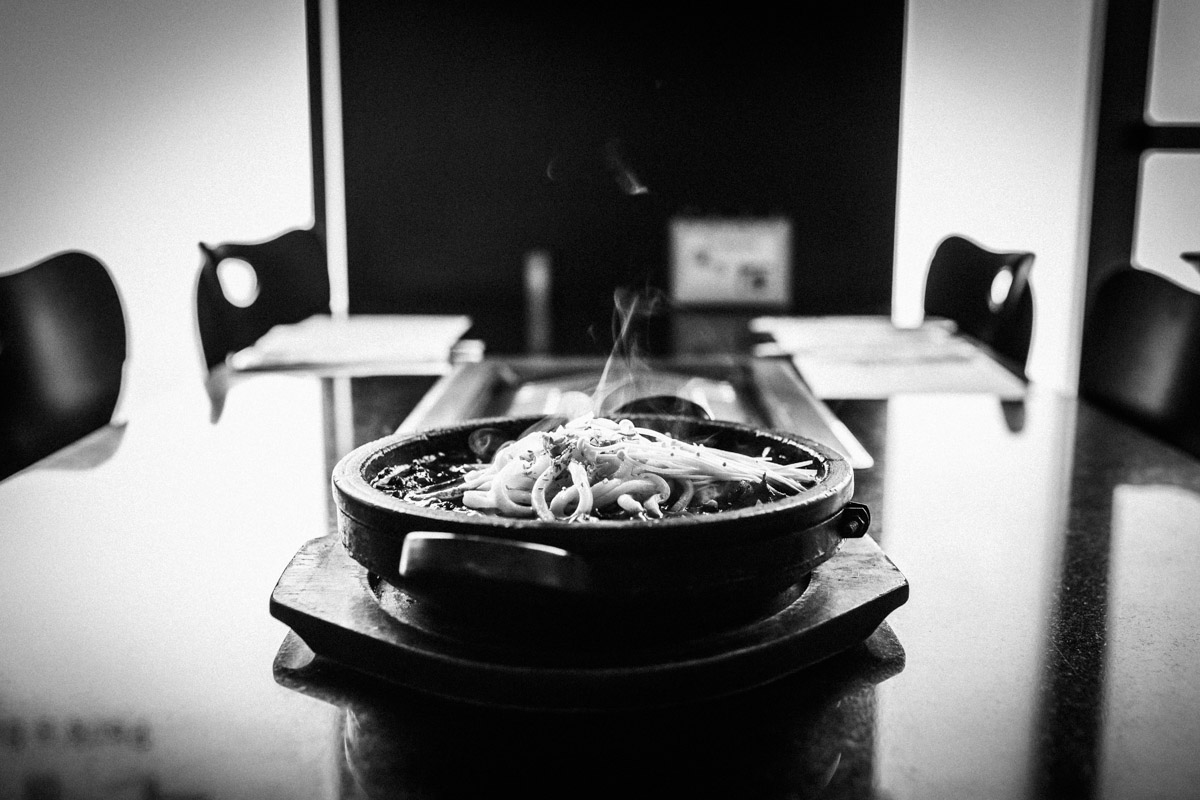
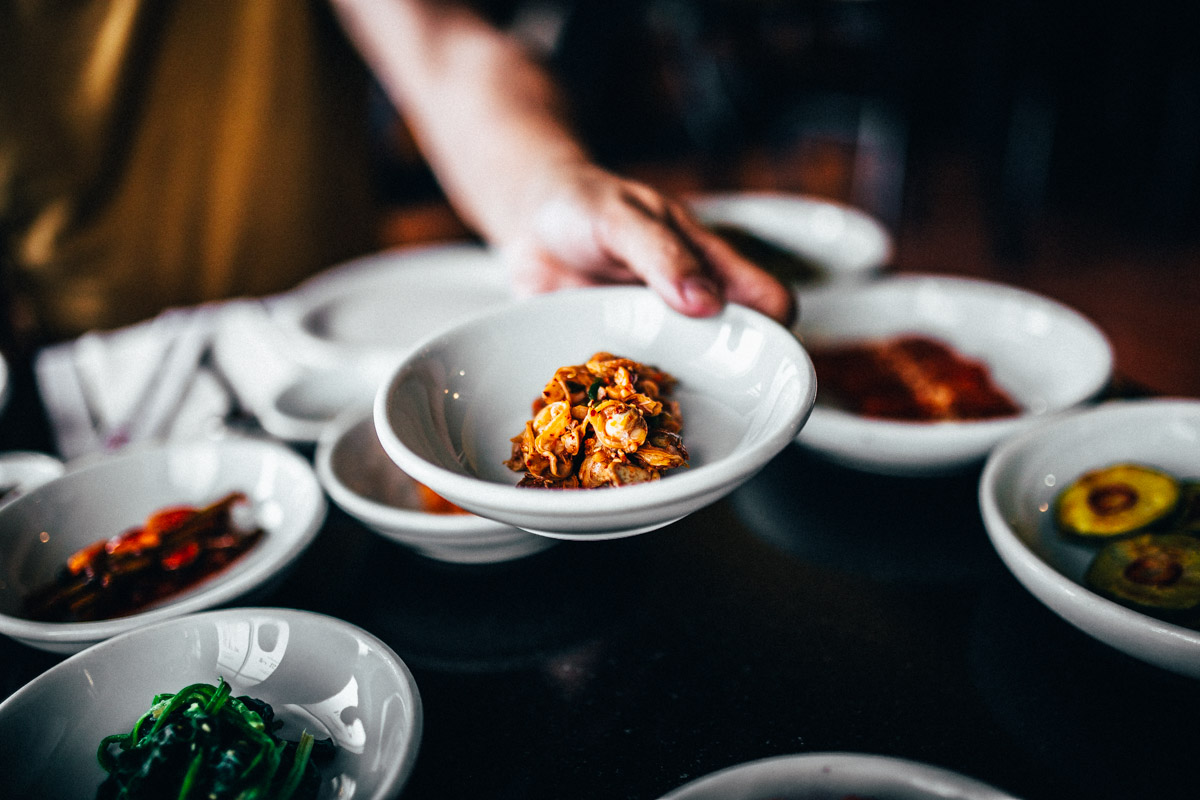
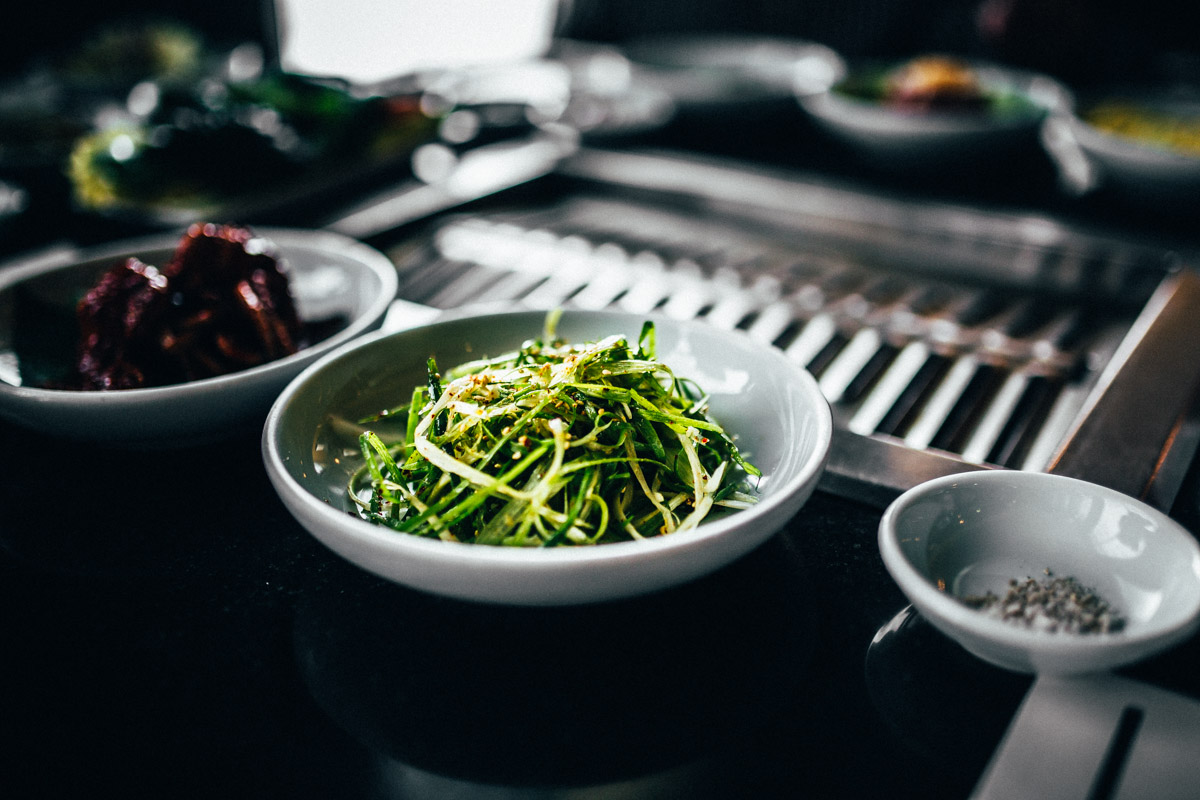
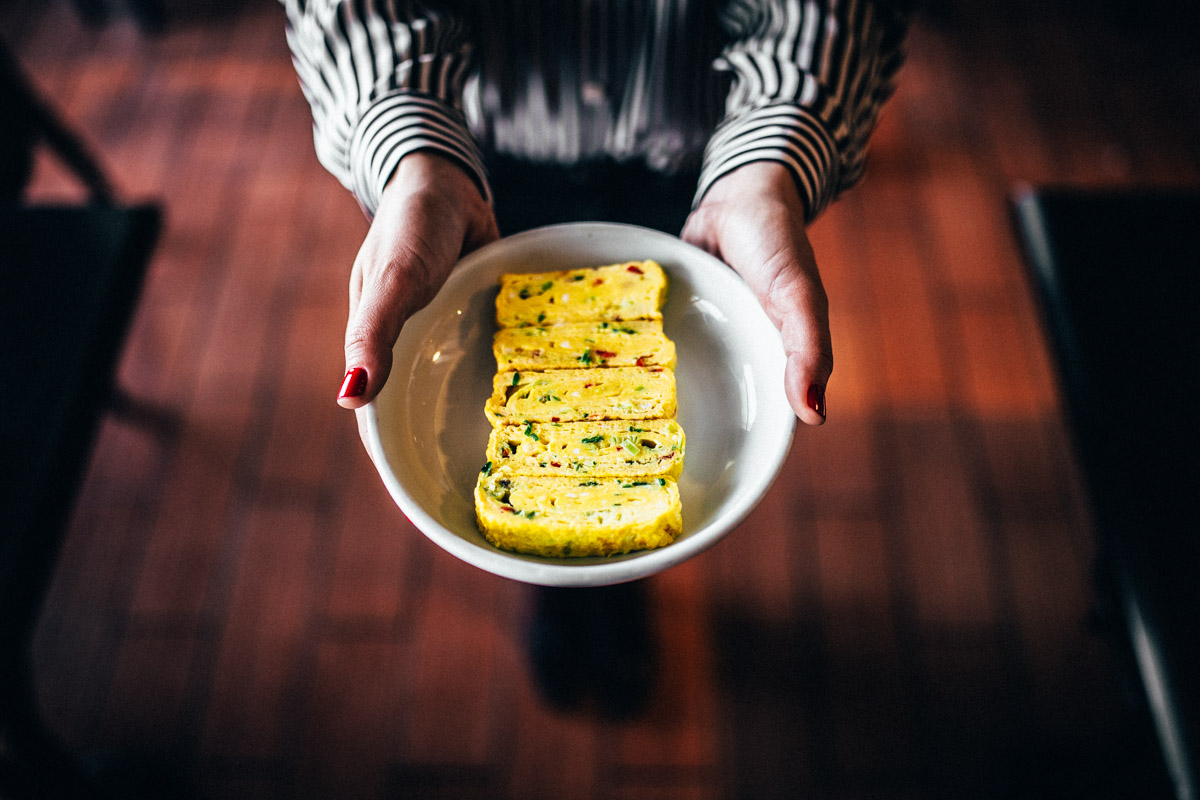
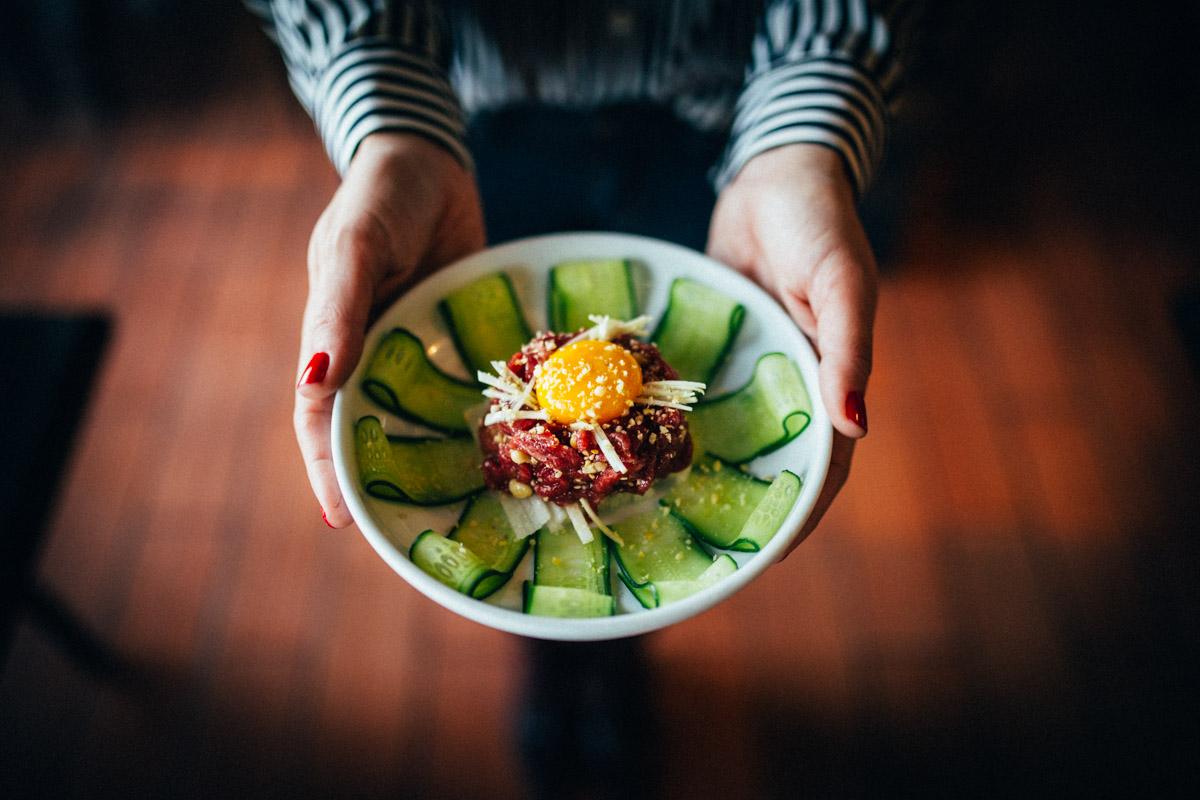
—
Parks BBQ
955 Vermont Ave, Los Angeles, CA 90006

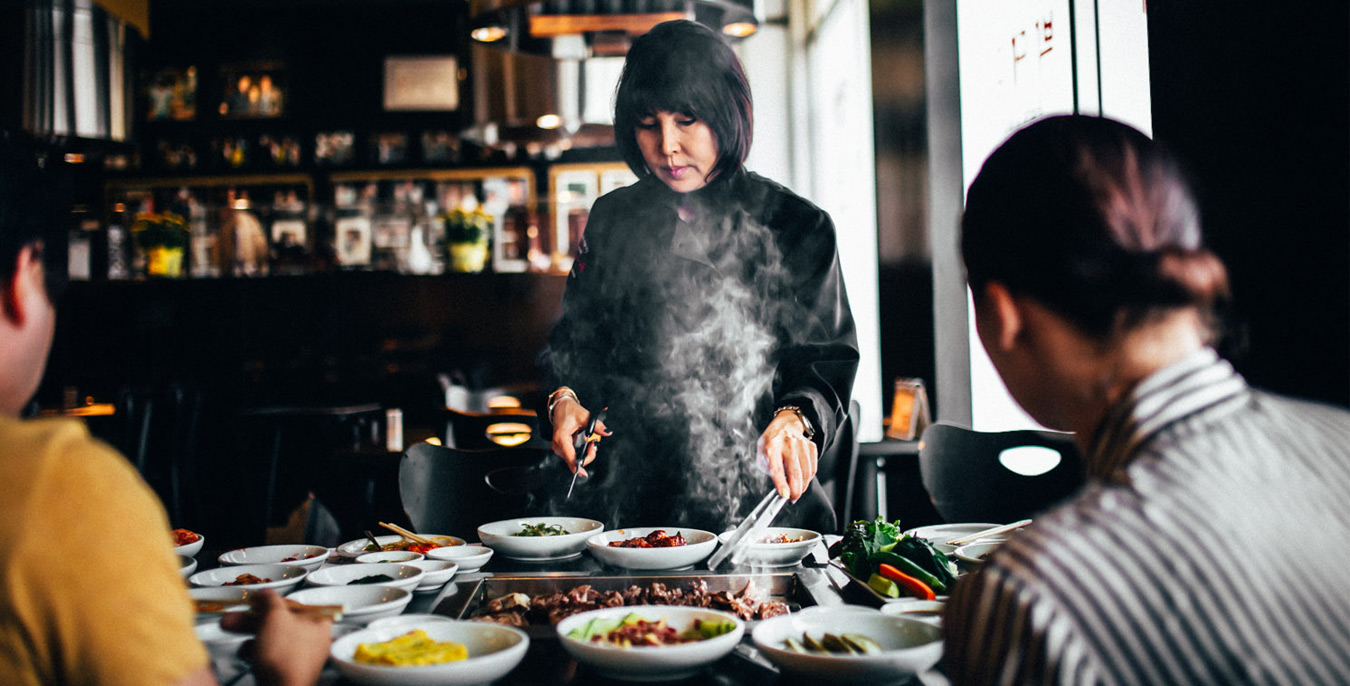

Our comments section is for members only.
Join today to gain exclusive access.